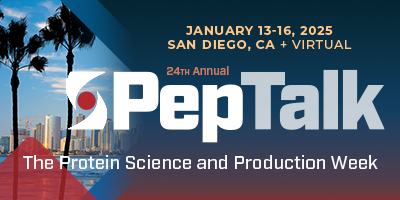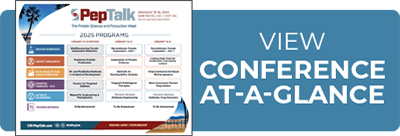演讲者
Filter by:

Arshad Ahmed, Founder & CEO, Zaylan Associates

Arshad is a founder of Zaylan Associates, a strategy consulting practice specializing life sciences and healthcare as well as digital innovation. Arshad’s experience in life sciences spans across the entire continuum of life sciences from early research, translational, clinical trials, , commercial and patient/physician engagement including technologies such as genomics, proteomics, cell biology, imaging and novel digital approaches. He has led the incorporation of novel AI techniques such as Consilience.ai into his strategy consulting practice. This novel AI approach is the only peer reviewed technique that has been pressure tested to predict the direction of science. Arshad started his career as an Analyst with Boston Consulting Group back in the 90s and founded several strategy consulting including Scientia Advisors which was a specialized strategy consulting group focused on life sciences which got acquired by Precision Medicine Group. Arshad served as the Vice President of Strategy and Business Development at Danaher where he and his team developed the strategy and business case for transformative acquisitions such as Pall Corporation which enabled Danaher’s entry into Bioprocessing. He has led Oncology Solutions for Philips as well as Digital Solutions including Cell & Gene Therapy Solutions at Avantor. He led several digital initiatives as a consultant to the Disruptive Technologies group at Novartis Oncology. During his consulting career, he has advised multinationals as well as startups in Pharmaceuticals, Life Sciences Tools, Diagnostics, Medtech, and Digital Health Informatics sectors, including but not limited to Danaher, Novartis, Philips, Avantor, Dow Chemicals, Pfizer, Astrazeneca, Sigma-Aldrich, Qiagen and numerous other companies. Arshad holds a BS in Electrical Engineering and Computer Science from the University of Illinois and an MBA in Finance and Business Strategy from the University of Chicago.

Azmain Alamgir, Research Scientist, Biochemical Engineering, Cornell University

My name is Azmain, and I'm a finishing Ph.D. student from the Department of Chemical Engineering and an incoming Ignite Commercialization Fellow at Cornell University. My research considers the development of chemical platforms to encapsulate and deliver protein therapeutics into target tissues using lipid nanoparticle (LNP) formulations. This novel strategy has been applied to deliver various protein cargos, including off-the-shelf antibodies, for clinically-relevant applications, thereby offering a versatile solution for delivery of protein therapies into cells.

Tero-Pekka Alastalo, CEO, Avenue Biosciences Inc

Tero-Pekka Alastalo (MD, PhD) is the CEO and co-founder of Avenue Biosciences. He has 12 years of experience as an entrepreneur in life sciences and over a decade of clinical and translational research experience. His previous roles include heading North American operations at CardioSignal and co-founding Blueprint Genetics, a clinical genetic testing company acquired by Quest Diagnostics in 2020.
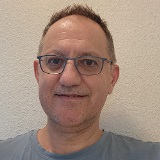
Alexander Alexandrov, PhD, Associate Director, Abilita Biosciences

Alex Alexandrov is an Associate Director at Abilita Therapeutics in San Diego, CA, with over 20 years of experience in the biotech industry. In his current role, he manages programs and provides technical leadership, focusing on protein expression, protein engineering, membrane protein production, and MSP nanodisc formulations. Recently, Alex has specialized in antibody discovery, employing techniques such as phage display and biophysical characterization assays to evaluate the developability of therapeutic candidates. His expertise has been instrumental in advancing early-stage drug discovery, particularly in oncology. Alex earned his Ph.D. in Biophysics from UC Berkeley and completed postdoctoral studies at UC San Francisco and the Scripps Research Institute.

Richard Altman, MS, Field Application Scientist, Life Science Solutions, Thermo Fisher Scientific

Rich Altman has 30 years of experience in protein expression and production. In early 2019, he joined Thermo Fisher Scientific as a Field Application Scientist. Previously, he worked for several pharmaceutical companies, including Amgen, Alexion, Bayer, and Upjohn, on the cloning, expression, purification and characterization of recombinant proteins. This work supported both small-molecule high-throughput screening and protein therapeutic efforts. He received his MS degree from the University of Pittsburgh School of Medicine in the Department of Molecular Biology and Biochemistry.

Emma Altman, Senior Research Associate, Protein Sciences, Kite, a Gilead Company

Emma is currently a senior research associate at Kite Pharma, where she is a member of a team focused on the design, production, and characterization of critical protein reagents to support CAR T cell discovery and drug development efforts. She has a wide-ranging background in academic and industry settings, working on characterizing metal-containing enzymes, understanding viral evolution through a bacteriophage model system, and supporting protein reagent development at 10X Genomics. She also recently earned an master's degree in anthropology with research focusing on intersection of historical archaeology and science.
- Cutting-Edge Tools for Purification and Quality Assurance
- Automation in Protein Sciences
- Methods for Developability Analysis
- Recombinant Protein Production - Part 2
- Recombinant Protein Production - Part 1
- Targeted Radioligand Therapies
- Next-Generation Protein Degradation
- Characterization for Novel Biotherapeutics
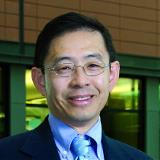
Zhiqiang An, PhD, Professor, Robert A. Welch Distinguished University Chair in Chemistry; Director, Texas Therapeutics Institute; Director, CPRIT Core for Antibody Drug Discovery; Vice President, Drug Discovery, University of Texas Health Science Center at Houston

Dr. Zhiqiang An is Professor of Molecular Medicine, the Robert A. Welch Distinguished University Chair in Chemistry, Director of the Texas Therapeutics Institute, and Vice President of Drug Discovery at the University of Texas Health Science Center at Houston. His laboratory focuses on antibody drug resistance mechanisms, biomarkers for therapeutic antibodies, and antibody drug discovery targeting human diseases. During the last five years, more than 12 novel antibody drug leads discovered in his laboratory were licensed to eight biotechnology companies, and six (6) have advanced to clinical trials for diseases ranging from acute myeloid leukemia (IO-202), breast cancer bone metastasis (ALMB-0168), solid tumor (IO-108), spinal cord injury (ALMB-0166), COVID-19 (IGM6268), and solid tumor (PRTH-101). Previously, he served as Chief Scientific Officer at Epitomics, Inc. and was Director of Biologics Research at Merck Research Laboratories. He has authored over 200 journal articles including more than 30 papers in Nature, Science, and Cell journal series; and two books including the award-winning “Therapeutic Monoclonal Antibodies: from Bench to Clinic.” He is an elected fellow of Society for Industrial Microbiology and Biotechnology (SIMB), the American Academy of Microbiology (ASM), American Association for the Advancement of Science (AAAS), and the National Academy of Inventors (NAI). Dr. An received his PhD from the University of Kentucky and his postdoctoral training at the University of Wisconsin-Madison.

Matt Anderson-Baron, PhD, CoFounder & CEO, Future Fields

Matt Anderson-Baron is the co-founder and Chief Executive Officer (CEO) of Future Fields, a Canadian biotech company that’s reinventing biomanufacturing with a first-of-its kind protein expression platform that utilizes whole insects. Their patented technology, the EntoEngine utilizes the common fruit fly as the world’s first multicellular expression system with the ability to leverage the cellular diversity of a whole organism. This genetic prowess, coupled to the immense reproductive efficiency of insects, allows Future Fields to manufacture the most complex and intractable proteins at low costs and large scale. A scientist-turned-entrepreneur, Matt obtained his PhD in Cellular and Molecular Biology at the University of Alberta and held a postdoctoral position in one of Canada’s top tissue engineering labs before co-founding Future Fields in 2019.
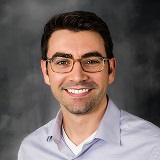
John D. Bagert, PhD, Associate Director, Biologics Engineering, AstraZeneca

I’m an Associate Director in the Biologics Engineering department at AstraZeneca, where I work on innovative protein engineering solutions for the development of bispecific and multispecific antibodies for therapeutic applications in oncology. My research seeks to fully realize the potential of these transformative molecules by (1) enhancing AZ’s DuetMab platform for the reliable production of multispecific antibodies, (2) developing robust high-throughput production and screening methods for these complex modalities, and (3) deepening our understanding of how engineering elements can deliver multispecific antibodies with functions custom-designed for their biologic application. I’ve served as the engineering lead on several large molecule pipeline programs, managing milestone transitions from early feasibility through asset generation and lead selection. I have >15 years of experience in protein engineering, protein chemistry, and methods development and hold a doctorate in bioengineering from the California Institute of Technology.
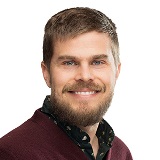
Kyle A. Barlow, PhD, Senior Scientist, Computational Biology, Adimab LLC

Kyle Barlow is a Senior Scientist at Adimab. He has been part of the San Francisco Bay Area-based computational biology team at Adimab for five years, where he works on the design and characterization of Adimab’s synthetic antibody libraries, the analysis and optimization of sequences from immunizations, and in silico design, including the design of chain pairing mutations to enable bispecifics. Working closely with experimentalists at Adimab, he also works to develop and evaluate machine learning models to predict and improve the developability properties of antibodies throughout the discovery process. Previously, Kyle completed his PhD in Bioinformatics at the University of California, San Francisco. His graduate research included work developing the Rosetta suite of protein modeling and design software, as well as the application of computational methods of protein design, such as in silico design and experimental validation of protein-based biosensors. He also developed and benchmarked the performance of computational methods to predict changes in stability or binding affinity after protein mutagenesis.

Kurt D. Benkstein, PhD, Research Chemist, Biomolecular Measurement Division, NIST

Kurt D. Benkstein earned degrees in Chemistry from Iowa State University (B.S.) and Northwestern University (M.S., Ph.D.). He joined the National Institute of Standards and Technology as a Research Chemist in 2003. In 2024, he served as the (Acting) Leader of the Bioprocess Measurements Group, which conducts research supporting biomanufacturing and health care. His personal research interests include the study of particle detection, counting, and characterization approaches, particularly for fluorescent and sub-micrometer-scale particles in aqueous environments.
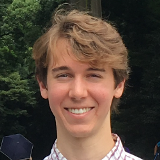
Tristan Bepler, PhD, CoFounder & CEO, OpenProtein AI

Tristan Bepler is the co-founder and CEO of OpenProtein.AI and the leader of the Simons Machine Learning Center at New York Structural Biology Center in New York City. He received his PhD from MIT, where he worked on machine learning methods for understand the protein sequence-structure-function relationship across evolutionary and biophysical data with Bonnie Berger. After his PhD, he worked with Tim Lu as a post-doc before launching OpenProtein.AI. Broadly, Tristan is interested in large scale machine learning methods for extracting latent representations from massive datasets, controllable deep generative models, data-efficient fine-tuning and supervised learning methods especially in the context of active learning and optimal experimental design.
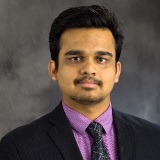
Krishna D Bharadwaj Anapindi, Research Scientist, Biology, Gilead Sciences Inc

Krishna D. B. Anapindi is a highly skilled bioanalytical mass spectrometrist with over eight years of experience in peptide and protein characterization. He is currently a Research Scientist at Gilead Sciences, where he is part of the Molecular Assessment (MA) team. His work focuses on evaluating the developability of protein therapeutics, developing innovative LC-MS workflows to streamline and improve the efficiency of both protein and small molecule analysis. At Gilead, Krishna also contributes to cutting-edge research by integrating machine learning models to predict key developability properties of therapeutic protein candidates. This involves designing and implementing workflows that enhance the characterization process, contributing to the optimization of therapeutic proteins. Krishna holds a PhD in Chemistry and a Master’s in Applied Statistics from the University of Illinois at Urbana-Champaign. His career demonstrates a strong blend of technical expertise, innovative thinking, and interdisciplinary research in the biopharmaceutical field.

Adithi Bhargava, Scientist, Late-Stage Pharmaceutical Development, Genentech, Inc.

Adithi is Principal Scientist at Genentech in the Pharmaceutical Development (Formulations) group. She has 10+ years of formulation and drug product processing experience supporting the clinical and commercial development of protein based therapeutics and has contributed to multiple health authority filings. She is currently a group leader in early stage formulation development, focusing on CMC development through Phase 1 clinical trials. In addition, she is an expert on in-use topics, including overcoming challenges during in-use administration of low dose/concentration solutions.

Neha Bhat, PhD, Sr Scientist, Biologics Discovery, Johnson & Johnson Innovative Medicine

I obtained my Ph.D. in Molecular, Cell, and Developmental Biology from Texas A&M University, where I elucidated the complex signaling mechanisms regulating the development of the peripheral nervous system. Following my doctoral studies, I pursued postdoctoral research at the University of Pennsylvania and Yale University, focusing on the cellular and molecular pathways that regulate lipid, glucose, and protein metabolism. These investigations laid the groundwork for a deeper understanding of metabolic disorders and potential therapeutic interventions. Currently, I am a Senior Scientist at Johnson & Johnson Innovative Medicine. In this role, I oversee antigen generation projects, pioneering several innovative approaches in virus-like particle (VLP) production, purification, quality control, and optimization of antigen expression. My research contributions have culminated in the publication of several peer-reviewed manuscripts, including nine first-author manuscripts, and several conference presentations.
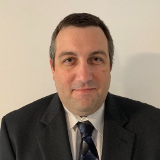

Andrew R.M. Bradbury, MD, PhD, CSO, Specifica, an IQVIA business

Andrew Bradbury is Chief Scientific Officer of Specifica. He trained in medicine at the universities of Oxford and London and received his PhD from the university of Cambridge at the MRC Laboratory of Molecular Biology under the guidance of Nobel Laureate, Cesar Milstein. He has worked in the fields of phage and yeast display, library generation, antibody engineering and Next Generation Sequencing for over thirty years. He was a Group Leader at Los Alamos National Laboratory before founding Specifica. Specifica's mission is to enable companies developing therapeutic antibodies with the world’s best antibody discovery platform.

Lynn Brainard, Conference Producer, Cambridge Innovation Institute

A dynamic and enthusiastic Event/Meeting Planner and Content Manager with a proven track record in logistics and production for a wide range of events, including domestic and international conferences, trade shows, and corporate meetings (virtual, hybrid, and in-person). With a deep background in specialized vertical markets, I excel at delivering content-rich events that foster collaboration and knowledge sharing among some of the world’s brightest minds. I thrive on building and maintaining strong relationships with key stakeholders, both internally and externally, and have a talent for cultivating speaker relations and steering committee planning. Adept at researching and securing high-caliber keynote and featured speakers from industry and academia, I am results-driven and passionate about creating impactful and successful events. Areas of Expertise & Specialties: Event Planning & Logistics: Expertise in virtual, hybrid, and in-person events. Conference Production: Skilled in crafting and delivering content-rich events across various industries, with extensive experience in the life sciences and other market segments. B2B Exhibition: Coordination and management of large-scale exhibitions and trade shows. Virtual Event Coordination: Successfully managed events with 8-12k+ attendees. Strategic Collaborations: Experience in fostering partnerships and collaborations to enhance event impact. Event Management Platforms: Proficient in using various platforms to manage and execute events. Multitasking: Demonstrated ability to handle multiple events simultaneously, meeting deadlines Show Management: Exceptional skills in overseeing complex events, from planning to execution. Interpersonal & Organizational Skills: Strong time management, interpersonal, and organizational abilities, ensuring seamless event operations.
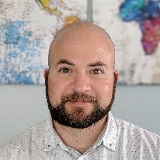
Oleg Brodsky, MBA, Senior Principal Scientist, Structural Biology & Protein Sciences, Pfizer Inc.

Oleg Brodsky is a principal scientist in the Structural Biology and Protein Sciences group at Pfizer, which is part of the medicinal chemistry department and larger Pfizer worldwide research and development organization. With 20 years of experience in high-throughput structure-based drug design techniques, Oleg has supported early-stage drug discovery efforts in various therapeutic areas, with current focus primarily on oncology targets. In his current role, Oleg is responsible for protein expression, purification, and biophysical characterization of various recombinant protein targets in support of high throughput screening, biochemical assay development, and structural characterization efforts. Prior to joining Pfizer in 2004, Oleg spent several years at Syrrx, a small biotechnology company focused on developing and optimizing high-throughput, parallel protein expression and purification technologies and workflows. Oleg received his B.S. degree in Bioengineering from UC San Diego in 2001, and after joining Pfizer completed his M.B.A. from UC Irvine in 2008.
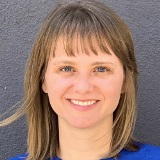
Nicole Cannon, Protein Sciences, Kite Pharma

I manage research data storage, processing and analysis systems to make quality data easier and more valuable in a discovery research setting. I am to teach, train and create automated integrations to aid bench scientists in generating data in formats ideal for data scientists and machine learning algorithms.
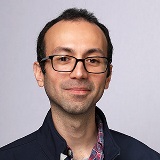
Alejandro Chavez, MD, PhD, Associate Professor, Department of Pediatrics, University of California San Diego

Dr. Chavez completed his M.D., Ph.D. at the University of Pennsylvania, residency in Clinical Pathology at Massachusetts General Hospital, and postdoctoral training at the Wyss Institute at Harvard. He was an Assistant Professor in the Department of Pathology at Columbia University, before joining the Department of Pediatrics at the University of California San Diego as an Associate Professor. His laboratory focuses on the development of high-throughput genome engineering and screening technologies to speed the rate of discovery, with a particular interest in applying these tools to the fields of neurodegeneration and infectious disease. Dr. Chavez is the recipient of various awards including the NIH New Innovator Award, Career Award for Medical Scientists from the Burroughs Wellcome Fund and grants from DARPA, DoD, Chan-Zuckerberg Initiative, and the Silicon Valley Community Foundation.
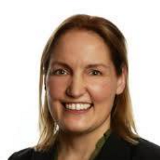
Sarah M. Cheal, PhD, Assistant Professor, Biological Chemistry in Radiology, Cornell University

Dr. Sarah Cheal is an Assistant Professor of Biological Chemistry in Radiology at the Molecular Imaging Innovations Institute, Weill Cornell Medicine, NYC. Her research lab specializes in preclinical development of radiotheranostics, with a primary focus on bispecific antibody-based pretargeted radioimmunotherapy.

Hui Chen, PhD, Associate Director, Protein Sciences, Surrozen

Hui obtained her Ph.D. degree on Biochemistry and Molecular Biology from Shanghai Institute of Biochemistry and Cell Biology, Chinese Academy of Sciences. After that, she continued the study as the postdoc working on proteasome mediated protein degradation in Dr. Philip Coffino’s lab at UCSF. Now she is the Associate Director in the Protein Sciences department at Surrozen focusing on the generation of the WNT mimetic molecules for the regenerative diseases. She has been performing multi-specific antibody-based molecule engineering and biochemical and biophysical characterization. More than that, she oversees the protein production, stable cell line generation and cell-based activity characterization of the WNT mimetic molecules. She has been the core team member of several projects at Surrozen, promoting several drug candidates into the clinical stage.
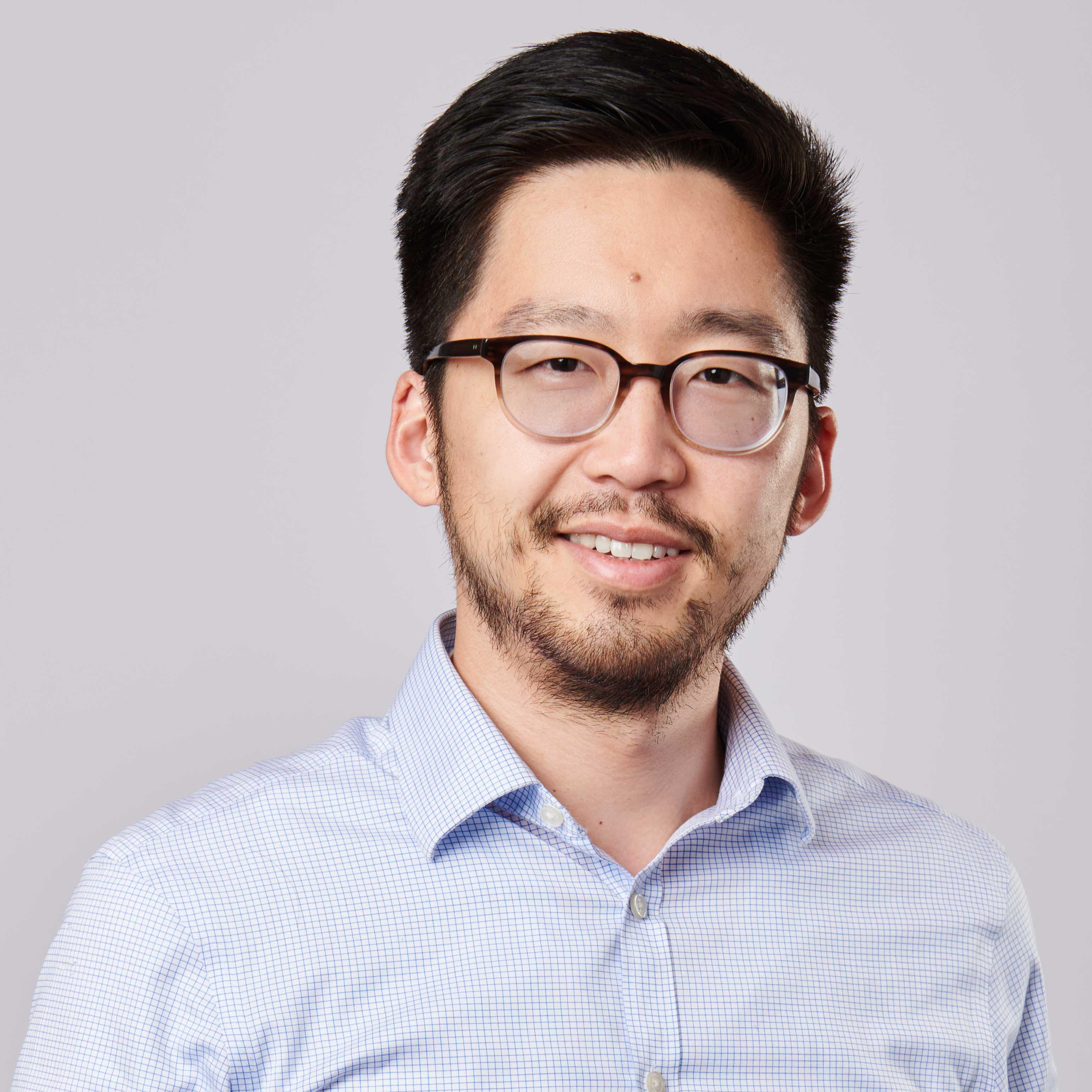
Michael Chen, CEO & Co Founder, Nuclera UK

Michael Chen is the Chief Executive Officer of Nuclera. In 2013, while working on his PhD Michael and his co-founders became frustrated by the inaccessibility of proteins to support everything from basic research to drug discovery. This prompted a mission, to make proteins more accessible to everyone. Over the past 10 years, Michael has led the company in raising multiple funding rounds totaling $83M, building a team of 100+ strong over 2 continents and driving the business and commercial strategy behind bringing our pioneer rapid protein prototyping technology to market. In his spare time Michael likes to explore different cultures, be that traveling, visiting museums, or attending art exhibits. One of his favorite exhibitions is in the Whipple Museum of the History of Science whose exhibits chart the progress of scientific tools and instruments over the last century. Michael holds a BSc in Chemistry from the Georgia Institute of Technology, and a PhD in Chemistry from the National Institutes of Health and University of Cambridge, where he met his co-founders Gordon McInroy and Jiahao Huang.

Priyanka Chichili, PhD, Principal Scientist, Chugai Pharmabody Research

I did my bachelor’s in industrial biotechnology and PhD in protein structure biology from the National University of Singapore. Later, I joined Protein Production Unit at Chugai Pharmabody Research Pte Ltd, Singapore, in 2017 and since then I was involved in the production of different antigens and antibodies for early-stage antibody drug discovery.

Henry C. Chiou, PhD, Senior Director General Manager, Biosciences, Thermo Fisher Scientific (Recently Retired)

Henry Chiou recently retired as Senior Director and General Manager for the Delivery and Protein Expression business within Biosciences at Thermo Fisher Scientific. Spanning 30+ years, he and his teams have developed products such as the Expi family of 293, CHO and Sf9-based expression systems, Lipofectamine 3000, and other Lipofectamine-family transfection reagents, production systems for cell and gene therapy viral vectors such as AAV MAX system, Neon and Neon NxT electroporation instruments and recently, a panel of high performance, low toxicity LNP lipid reagents. Henry has authored multiple publications on mammalian transient expression and frequently teaches courses and lectures on this subject. Prior to joining Thermo Fisher, Henry worked in small to mid-sized biotech companies on non-viral gene therapy. Henry received his doctorate from Harvard University in Molecular Pharmacology, following which he completed a postdoctoral fellowship in viral expression systems at the University of Pennsylvania.
- Cutting-Edge Tools for Purification and Quality Assurance
- Automation in Protein Sciences
- Methods for Developability Analysis
- Recombinant Protein Production - Part 2
- Recombinant Protein Production - Part 1
- Targeted Radioligand Therapies
- Next-Generation Protein Degradation
- Characterization for Novel Biotherapeutics

Cecilia Chiu, PhD, Scientist IV, Genentech, Inc.

Cecilia received her PhD from the University of British Columbia in Canada, specializing in X-ray crystallography to study bacterial pathogenesis and structure-based drug design. In 2007, Cecilia joined the Antibody Engineering department at Genentech as Senior Scientist, focusing on antibody discovery, sequence optimization and format engineering. With over 17 years of industry experience in drug development, she spearheaded countless successful antibody discovery campaigns against diverse target classes using both phage display and single B-cell culture technologies. As an accomplished antibody engineer, she has a strong track record of advancing both mono- and bispecific antibody modalities from research into clinical development. In recent years, her focus has been to develop smart biologics for targeted drug delivery for different disease areas.
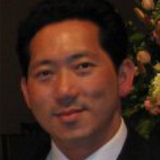
Danny Chou, PhD, President and Founder, Compassion BioSolution, LLC

Dr. Danny K. Chou is a biopharmaceutical industry veteran with expertise in biopharmaceutical characterization, formulation development, and emerging technologies for protein aggregate/subvisible particle analysis. Currently, Dr. Chou is the Founder and President of Compassion BioSolution, a biopharmaceutical consultancy and Contract Development Service provider that serves clients throughout the world. Dr. Chou has over 20 years of experience in the pharmaceutical industry, both as a pharmacist and pharmaceutical scientist. Over the past 15 years he has led the development of formulations for numerous therapeutic modalities ranging from peptides, growth factors, mAbs, ADCs, and bispecific antibodies. Prior to starting Compassion BioSolution, Dr. Chou was a Senior Scientist and Group Leader at Gilead Sciences, where he successfully built up state-of-the-art analytical capabilities for the company and converted IV formulations of monoclonal antibodies to high concentration formulations that are more stable and can be easily administered by subcutaneous injection. Prior to this, Danny was employed by Genzyme and Amgen, where he played critical roles in drug product process development, manufacturing technical support, and pharmaceutical development. Since founding Compassion BioSolution, Danny has developed stable pharmaceutical dosage form for clients ranging from small start-up biopharmaceutical companies to Fortune 500 pharmaceutical companies. Danny received his PhD from the University of Colorado Center for Pharmaceutical Biotechnology under a NIH Fellowship and his PharmD from the University of Florida.
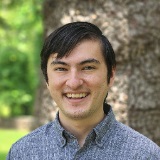
Robert I. Clifford, Scientist, AstraZeneca

I am a Senior Scientist at AstraZeneca responsible for planning and executing the production, purification, and conjugation of critical reagents. My work as a member of the Biopharmaceuticals Development team was used to support pipeline projects from initial concept through development.
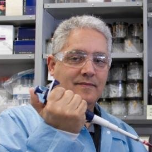
Matthew Coleman, PhD, Senior Scientist & Group Leader, Biosciences and Biotechnology Division, Lawrence Livermore National Laboratory

Dr. Matthew A. Coleman is a senior biomedical staff scientist and group leader at Lawrence Livermore National Laboratory as well an adjunct professor in the department of Radiation Oncology at University of California Davis School of Medicine. He received his Ph.D. in Molecular and Cellular Biochemistry from Boston University. Dr. Coleman has authored over 150 publications in peer-reviewed journals, published proceedings and book chapters covering a diverse breadth of molecular biology and biochemistry. He has over 25 years experience in developing biotechnology and characterizing genomic responses of genotoxic stressors.

Christopher Cooper, PhD, Director and Head of Protein Sciences, CHARM Therapeutics

Chris joined CHARM Therapeutics, an AI-driven biotech company as Director and Head of Protein Sciences in 2022. CHARM’s research focuses on novel approaches for cancer drug discovery using protein and ligand co-folding algorithms for hard-to-drug targets. Prior to this, Chris was the Director of Protein Science at Peak Proteins, but for most of his career he studied the biochemistry and structural molecular biology of DNA repair and replication. He was a Senior Lecturer in Biological Sciences at the University of Huddersfield for 6 years and performed his postdoctoral research at the University of Oxford, working at the Structural Genomics Consortium and Sir William Dunn School of Pathology. During this period Chris was also a College Lecturer in Biochemistry at The Queen’s College, and a Junior Research Fellow at Linacre College.
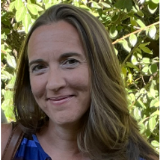
Christa Cortesio, PhD, Director, Protein Biochemistry & Analytics Core, Kite, A Gilead Company

Christa Cortesio, PhD, is a Director at Kite Pharma, a Gilead Company. She has more than 10 years of biochemistry-related industry experience and currently leads a team at Kite Pharma focused on the design, production, and characterization of critical protein reagents to support CAR T cell discovery and drug development efforts. Dr. Cortesio received her PhD in biomolecular chemistry with Anna Huttenlocher at the University of Wisconsin, Madison, where she studied mechanisms of cell migration and cancer cell invasion. Subsequently, she did postdoctoral work aimed at understanding cytoskeletal regulation during clathrin-mediated endocytosis with David Drubin at the University of California, Berkeley. Christa has authored 17 manuscripts published in several journals, including Journal of Cell Biology, Journal of Biological Chemistry, Journal of Cell Science, and Scientific Reports.
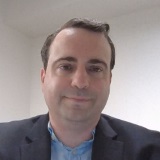
Timothy K. Craig, PhD, Lab Head Protein Sciences, Pfizer Inc.

Tim is an experienced protein scientist with a background in membrane proteins, completing his BS in both Biochemistry and Neuroscience from Brandeis University, before continuing on to receive a PhD in Molecular Biophysics and Biochemistry at UT Southwestern Medical Center, and a postdoctoral fellowship at GNF/Novartis, all focused on integral membrane proteins. After completing his postdoc, he continued on to work for both small CROs and large pharmaceutical companies delivering high quality recombinant proteins to support both diagnostic and pharmaceutical discovery efforts.
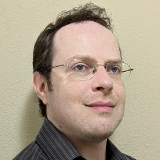
Zachary R. Crook, PhD, Senior Research Scientist, Ben Towne Center, Seattle Children's Hospital

I pursued my undergraduate degree at the University of Colorado prior to my PhD studies at MIT with David Housman, where I developed reporters and therapeutic strategies in mouse models of Huntington’s Disease. I next joined Jim Olson’s lab at the Fred Hutch Cancer center as a post doc, working on miniprotein therapeutics for cancer and CNS disorders. This involved a fellowship through the Institute for Protein Design to learn computational modeling and design of proteins and peptide therapeutic candidates. I developed a miniprotein screening platform, and identified several candidates for incorporation into therapeutic candidates that we tested in several cell and animal models. I eventually developed the eTPD platform we called CYpHER for catalytic TfR-mediated target uptake and release. This led to joining with Natalie Nairn and William Canestaro as we formed Cyclera Therapeutics to further develop its potential for cancer and CNS diseases. In 2024, I transitioned to Seattle Children's Hospital to continue protein therapeutic research with a focus on pediatric brain cancer and neuroinflammation.
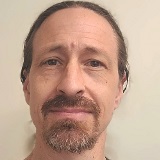
Kevin Crossley, Scientist, Synthetic Group, Amgen, Inc.

Kevin Crossley has worked in the pharmaceutical industry for 23 years and acquired extensive purification and chromatography experience. Kevin graduated from CSUN (California State University of Northridge) in 1998 with a B.A. in Biology. He began his scientific career as a bench chemist and purification scientist performing large scale extractions and isolations of natural products at Miravant Medical Technologies. In 2008, Kevin moved to Amgen supporting FIH through commercial products with impurity isolations, and large scale (multigram to kilogram) purifications of chiral and achiral molecules by SFC, RPLC and NPLC. In 2019, he joined Larry Miller’s group, utilizing a multitude of analytical and preparative skills to advance the Discovery pipeline and expand the purification capabilities. Kevin is a recipient of the EPA Green Chemistry Award (Greener Reaction Conditions) in the 2017 Green Chemistry Challenge., the Amgen SMP&PD Green Chemistry Award in 2011, patent holder and contributor to several publications.
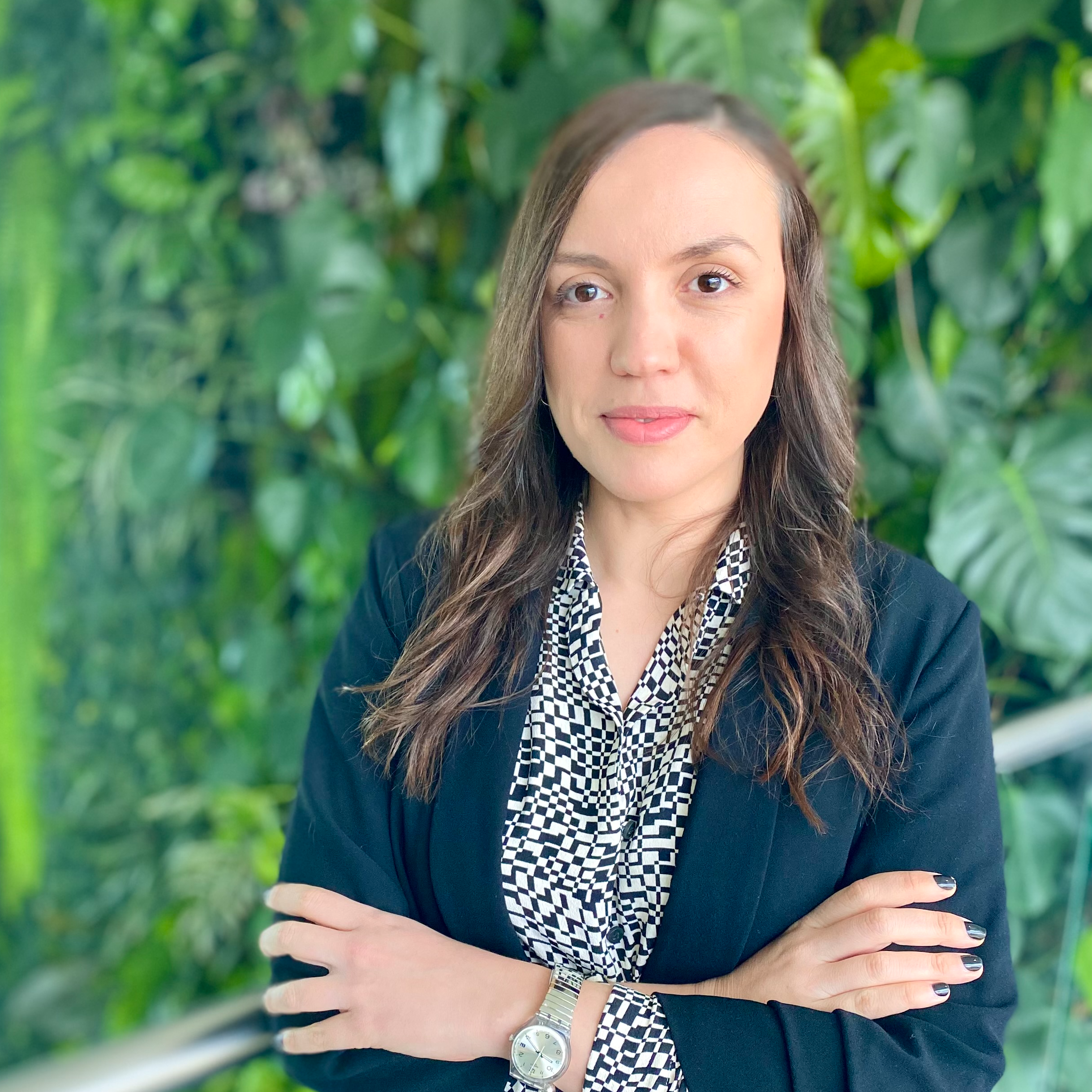
Rita Cruz, Head of Molecular Biology, Molecular Biology, Ingenza Ltd

Dr. Rita Cruz is the Section Head of Strain Engineering at Ingenza, a leading biotech CRDMO in the evolving landscape of biomanufacturing and engineering biology, based on the outskirts of Edinburgh. Since joining Ingenza in 2016, Rita has been leading programmes with both academic partners and high-profile global customers to deliver high-risk disruptive and innovative technology whilst steering such programmes towards commercialisation. Successful applications range from platform vaccine development, agrobiotechnology and scalable production of enzymes for biocatalysis and home care products. Prior to her time at Ingenza, Rita received a PhD through the prestigious Marie Curie Industrial European Doctorate programme at the Centre for Bacterial Cell Biology at Newcastle University in collaboration with DSM, a world leader in enzyme manufacturing.
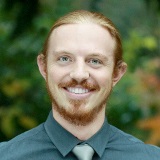
Cole A. DeForest, PhD, Weyerhaeuser Endowed Professor and Associate Chair, Department of Chemical Engineering, University of Washington

Dr. Cole A. DeForest is the Weyerhaeuser Endowed Associate Professor in the Departments of Chemical Engineering and Bioengineering, the Associate Chair and Graduate Program Director of Chemical Engineering, as well as a core faculty member of the Institute for Stem Cell & Regenerative Medicine at the University of Washington (UW) where he began in 2014. He received his B.S.E. degree from Princeton University in 2006, majoring in Chemical Engineering and minoring in Material Science Engineering and Bioengineering. He earned his Ph.D. degree under the guidance of Dr. Kristi Anseth from the University of Colorado in Chemical and Biological Engineering with an additional certificate in Molecular Biophysics. His postdoctoral research was performed with Dr. David Tirrell in the Divisions of Chemistry and Chemical Engineering at the California Institute of Technology. He has published ~60 peer-reviewed articles, including as the corresponding author for those appearing in Nature Materials, Nature Chemistry, Advanced Materials, JACS, PNAS, Science Advances, and Nature Reviews Materials. Dr. DeForest has received numerous research awards and honors including the Society for Biomaterials Young Investigator Award (2020), NIH Maximizing Investigators' Research Award (MIRA R35, 2020), Safeway Early Career Award (2018), NSF CAREER Award (2017), AIChE 35-Under-35 Award (2017), ACS PMSE Young Investigator Award (2017), Jaconette L. Tietze Young Scientist Award (2015), Biomedical Engineering Society Student Fellow Award (2013), DSM Polymer Technology Award (2011), ACS Excellence in Graduate Polymer Research Award (2010), MRS Graduate Student Research Gold Award (2009), Society for Biomaterials Outstanding Achievement Award (2009), Princeton University Material Science Student of the Year (2006), Princeton University Most Approachable Resident Adviser (2005), and Boulder High School Valedictorian (2002). Notably, he has also been recognized for excellence in teaching and was awarded the UW Presidential Distinguished Teaching Award (2016), given annually to a single Assistant Professor across all of the UW. His research has been supported through fellowships and grants from the National Science Foundation, the National Institutes of Health, and the US Department of Education.
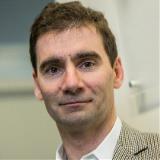
Matthew DeLisa, PhD, Director, Cornell Institute of Biotechnology, Cornell University

Matthew P. DeLisa is the William L. Lewis Professor of Engineering in the School of Chemical and Biomolecular Engineering at Cornell University and also the Director of the Cornell Institute of Biotechnology. His research focuses on understanding and controlling the molecular mechanisms underlying protein biogenesis -- folding and assembly, membrane translocation and post-translational modifications -- in the complex environment of a living cell. He received a B.S. in Chemical Engineering from the University of Connecticut in 1996; a Ph.D. in Chemical Engineering from the University of Maryland in 2001; and did postdoctoral work at the University of Texas-Austin, Department of Chemical Engineering. DeLisa joined the Department of Chemical and Biomolecular Engineering at Cornell University in 2003. DeLisa has received over a dozen honorific distinctions and prestigious awards for his accomplishments in research including an NSF CAREER Award, a NYSTAR Watson Young Investigator Award, a Beckman Foundation Young Investigator Award, an MIT Technology Review TR35 Award (Top 35 Young Innovators under the age of 35), an Office of Naval Research Young Investigator Award, a NYSTAR Distinguished Faculty Award, the Wiley-Blackwell Biotechnology and Bioengineering Wang Award, and the American Chemical Society BIOT Division Young Investigator Award. More recently, DeLisa was selected to the IDA/DARPA Defense Science Study Group in 2014 and was elected as a fellow of the American Institute for Medical and Biological Engineering in 2014, the American Academy of Microbiology in 2019, and the American Association for the Advancement of Science in 2019.

Danielle Dettling, CSO and Co-Founder, Fury Biosciences LLC

Ms. Danielle Dettling is the CSO and Co-founder of Fury Biosciences. Ms. Dettling has worked in the pharmaceutical and biotechnology industry toward the research and development of therapeutics for >20 years. Danielle spent 10+ years at Pfizer where she recently was co-inventor and program lead of Flt3-targeted CAR-T and CD3 bispecific programs for the treatment of AML. The breadth of Ms. Dettling’s experience includes the development of pre-clinical models for evaluation of pharmacological activity, toxicology assessment, PKPD modeling and translational assay development, and in leading teams in patient-focused approaches to therapeutics discovery. She worked on the development of novel biotherapeutics across indications including immuno-oncology, metabolic disease, pain, and bone metabolic disorders encompassing monoclonal antibodies, ADCs, bispecific antibodies and cell engagers, integrating closely with protein engineering. Over her career she has held roles of increasing responsibility. At Maverick Therapeutics (acquired by Takeda, 2021) Ms. Dettling served as Senior Director, Research Development enabling the advancement of 2 COBRAs (COnditional Bispecific Redirected Activation) into Phase 1 clinical trials, along with many additional COBRA programs through pre-clinical development. TAK-186 and TAK-280 are the first conditionally activated T cell engagers to enter clinical trials. Ms. Dettling has published 18 peer-reviewed journal articles in research.
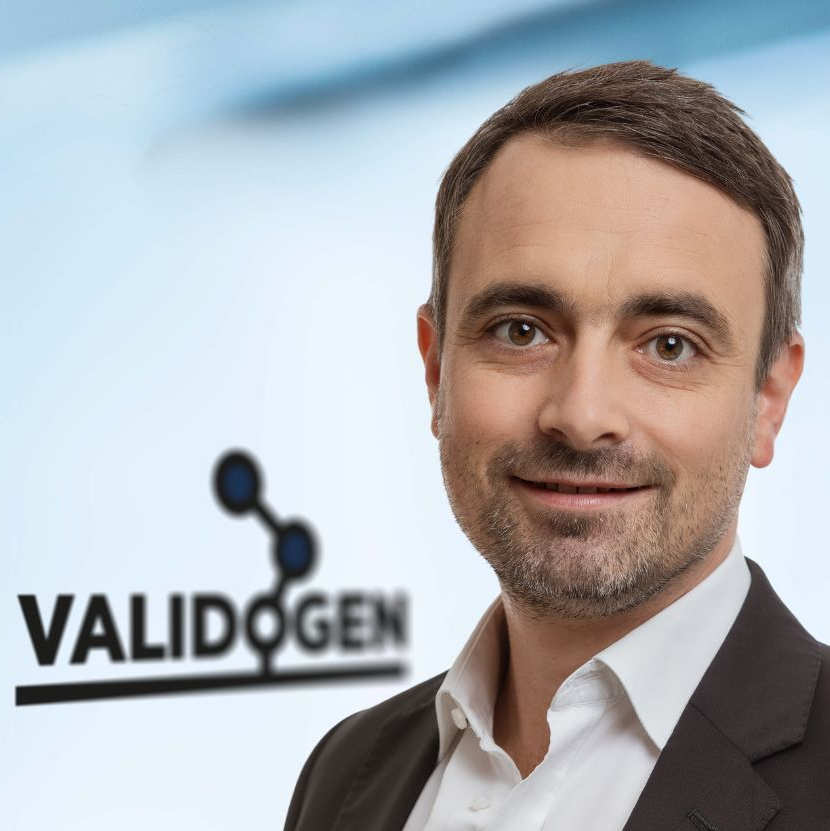
Iskandar Dib, Principal Scientist, Process Development & Analytics, VALIDOGEN GmbH

Iskandar Dib received his education at Graz University of Technology and the Research Center Applied Biocatalysis. After obtaining his PhD he joined the team of VALIDOGEN in 2008 where he helped build the company and service business and is now heading the DSP and analytics department. His areas of expertise include process development for up- and downstream processes applying DoE tools for process understanding. Furthermore, he has a key role in business development, discussing and designing projects in close collaboration with clients to best meet their development needs.
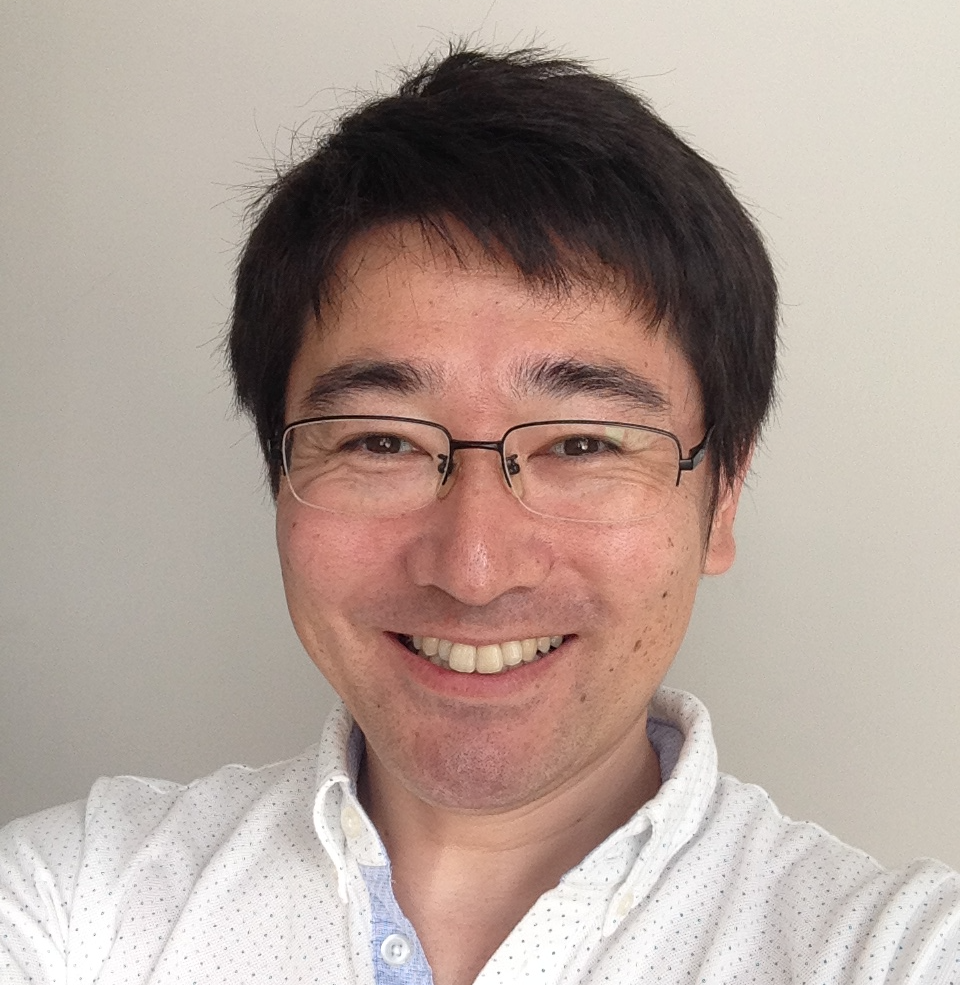
Takashi Ebihara, COO, GeneFrontier Corporation

Takashi is COO of GeneFrontier Corporation (GFC) since 2010. Takashi got his PhD for the research of cell-free protein expression system at Tokyo Institute of Technology in 2000 and joined in VC in life science industry. At 2003, Takashi was involved in establishing of GFC and fully committed to business development of GFC from the beginning.
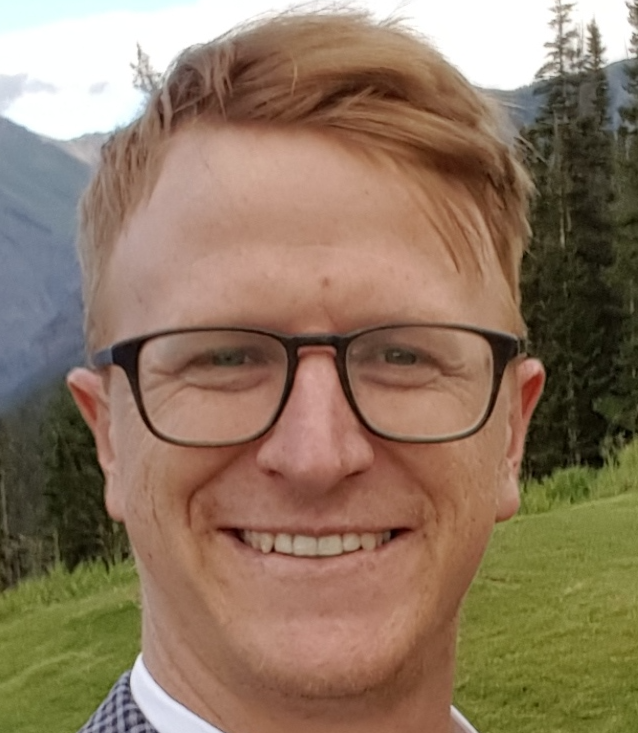
Frank Erasmus, Director, Bioinformatics, Specifica, an IQVIA business

M. Frank Erasmus is head of bioinformatics. Formerly, Frank was a Ruth L. Kirschstein research fellow with the National Cancer Institute for his work involving the pre-B cell receptor in acute lymphoblastic leukemia.
He brings over 8 years of experience in the development and characterization of therapeutic antibodies in academic and biotech environments. Within industry, he worked as an analytical chemist to characterize antibody-based products in a cGMP/GMP facility.
As a predoctoral trainee at the Spatiotemporal Modeling Center of New Mexico and Los Alamos National Labs, he incorporated both experimental and computational approaches to develop antibody-based products for treatment in leukemia.
Frank is a co-inventor of a patented antibody therapy that he recently adapted for use as a chimeric antigen receptor (CAR) T cell therapy in acute lymphoblastic leukemia. He holds a Ph.D. in Biomedical Science (University of New Mexico), an M.S. in Molecular & Cell Biology (San Diego State) and a B.S. in Molecular Biology (Cal Poly, San Luis Obispo).

Iman Farasat, PhD, Director, High Throughput Expression, Johnson & Johnson Innovative Medicine

Iman is currently working as Director of High Throughput Protein Expression group in Biologics Discovery organization at Johnson and Johnson. Prior to this role, he worked in Protein Engineering group at Merck. He has a PhD in Chemical Engineering with focus in Synthetic Biology at Penn State University.
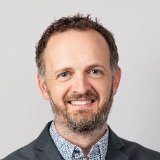
Jonathan Frampton, PhD, VP Bus Dev, ProteoNic BV

Jonathan is a recognized thought leader and strategic innovator at the intersection of bioproduction and cell and gene therapy, with extensive expertise in developing and commercializing advanced vector technologies. As a driving force behind the global adoption of ProteoNic’s 2G UNic® vector technology platform, he has been instrumental in overcoming production bottlenecks, enhancing vector design, and addressing critical challenges in lentiviral vector production, gene delivery, and therapeutic scalability. Jonathan’s unique combination of commercial acumen and molecular biology expertise enables him to provide actionable insights into optimizing vector platforms for therapeutic applications, advancing both bioproduction efficiency and the potential of cell and gene therapies. His leadership continues to shape industry advancements and foster strategic partnerships that unlock new therapeutic opportunities.

Fredrik Frejd, PhD, CSO, Affibody AB

Fredrik Frejd is the Chief Scientific Officer at Affibody and has over 25 years of experience in life science research with particular expertise in biologics drug development and tumor biology, phage display and therapeutic protein engineering of alternative scaffolds. Dr. Frejd received his Ph.D. from the Swiss Federal Institute of technology, ETH, in Zurich in 2001 and joined Affibody AB in 2002. Dr. Frejd is also an adjunct professor in cancer precision medicine at the department for Immunology, Genetics and Pathology at Uppsala University, with a special focus on development of minimized tumor targeting agents for molecular radiotherapy.

Petra Fromme, PhD, Paul V. Galvin Professor, Chemistry & Biochemistry, Arizona State University

Petra Fromme is a German-American chemist who is Director of the Biodesign Center for Applied Structural Discovery and Regents Professor at Arizona State University. Her research considers the structure-to-function relationship of the membrane proteins involved with infectious diseases and bio-energy conversion. Fromme's academic career started at the Max Volmer Institute, part of the Technical University of Berlin. Fromme joined Arizona State University as a Professor of Molecular Sciences in 2002. She was named Paul V Galvin Professor in 2012. In 2014, Fromme was appointed Director of the Centre for Applied Structural Discovery. The following year she was selected as a Regents' Professor. At Arizona State, she oversaw the development of two compact X-ray accelerator systems, including an X-ray light source and an X-ray Free Electron Laser. Fromme was amongst the first people to use high-energy X-ray free-electron lasers to analyze proteins. These lasers, which produce extremely bright and ultra-short pulses of light, allow for serial femtosecond nanocrystallography. Whilst conventional high-intensity X-ray pulses can damage the molecules they are interrogating, femtosecond pulses can permit the acquisition of diffraction patterns before the sample degrades. Femtosecond measurements allowed Fromme to establish the structure-property relationships of crucial biological systems, including ATP synthase, Photosystem I, and Photosystem II. Nanocrystallography will allow for the development of more safe and effective drugs, as well as accelerate our understanding of material design for renewable energy sources. In an effort to design new drugs, Fromme has studied the structure of disease-linked enzymes in the human body including Taspase I. The protease is involved with cell metabolism, proliferation, migration, and termination, and its dysregulation is implicated in the genesis of various cancers. By investigating Taspase I with free-electron lasers, Fromme showed that there is a critical helical region that defines the protease activity, and eliminating this region can deactivate the enzyme entirely. X-ray Free Electron Lasers also allowed for the characterizations of Francisella tularensis, the bacterium which gives rise to Tularemia.
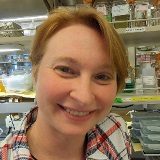
Stacey Gerben, PhD, Collaborative Manager, Institute for Protein Design, University of Washington

Dr. Stacey Gerben specializes in de novo protein design and expression. She earned her PhD from the Baker Lab at the University of Washington, and involved expressing and testing over 200 different newly designed proteins. Currently, Dr. Gerben serves as a staff scientist at the Institute of Protein Design (IPD), where she has made significant contributions to both mid-scale and high-throughput protein production. At the IPD, Dr. Gerben initially led efforts in mid-scale protein production, optimizing processes to enhance efficiency and output. She now spearheads the development of small-scale, high-throughput, semi-automated protein production systems, driving progress in the precision and scalability of protein production technologies.

Anita Ghosh, PhD, Senior Scientist, Antigen Production, Institute for Protein Innovation

Anita Ghosh is a Senior Scientist at the Institute for Protein Innovation (IPI), a non-profit research organization that generates synthetic, recombinant antibodies targeting native, human extracellular, and secreted proteins. As the lead for Antigen Production, she oversees the design, production, and delivery of cell- surface receptor antigens from mammalian expression hosts. Over the past three years, her team has processed and delivered over 700 variants of 300 unique targets from mouse and human cell-surface receptor protein families. Ghosh has a background in structural biology, completed a Ph.D. at Purdue University and post-doctoral fellowships at Johns Hopkins University and Boston University.

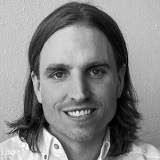
Shaemus Gleason, Executive Vice President, Clarity Pharmaceuticals

Shaemus is an accomplished professional with over 16 years of experience in the radiopharmaceutical industry. His career has spanned various roles in both small biotech firms and large pharmaceutical companies, providing him with a comprehensive understanding of the field. Shaemus's expertise ranges from the manufacturing of radiopharmaceuticals to their development in clinical trials and subsequent commercial launch and execution. This diverse background has equipped him with the ability to adapt and excel in start-up environments and with evolving product offerings. Shaemus has spoke at a number of international conference on various subjects related to radiopharmaceuticals. He also sits in the board of the Council of Radiopharmaceutical Manufacturers and is a previous board member of NRMAP, the National Radionuclide Measurement Assurance Program.
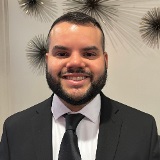
Sabat Gonzalez-Serrano, Graduate Fellow, Chemical & Biomolecular Engineering, Ohio State University

Born and raised in Puerto Rico, Sabat earned his degree in Animal Science and Pre-Veterinary Medicine with a minor in Biochemistry from the University of Puerto Rico at Mayagüez. His research experience spans Food Biotechnology, animal DNA genotyping, protein computational modeling, and bioprocess development. In early 2018, he joined CDI-Labs's Proteomic division in Mayagüez, working full-time on monoclonal antibody validation for commercial services and in-house production. Later that year, he began his PhD in Biochemistry at the Ohio State University, where he joined Dr. David Wood's applied protein engineering laboratory. In 2019, Sabat received the NIH Molecular Biophysics Training Program Fellowship award. In 2022, he was awarded the German Academic Exchange Program scholarship to conduct research at the Institute for Bioprocess and Analytical Techniques (IBA) in Thüringen, Germany. He is currently finalizing his thesis, scheduled for graduation in Spring 2025, which focuses on protein engineering, biophysical characterization, biochemical validation assays, and protein purification technology development.
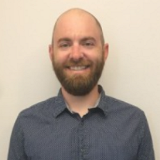
Andy Goodrich, PhD, Associate Director, Biologics, Epibiologics

Andy Goodrich is the Associate Director of Protein Sciences at EpiBiologics. In his role as Associate Director, he oversees the production, purification, and quality control of bi- and multispecific antibodies for all stages of the drug development process, from screening through candidate selection. Andy also supports the antibody discovery group by performing developability assessments on all candidate molecules. In previous roles at Anexigen and Genentech, Andy focused on the discovery and optimization of peptide therapeutics with the aim of developing novel antibiotics and complement inhibitors, respectively. Andy trained as a structural biologist and biophysicist at the Johns Hopkins University School of Medicine before completing postdoctoral training at the University of Texas at Austin.
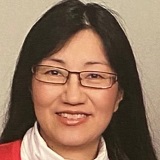
Jane (Yongjing) Guo, PhD, Senior Principal Scientist & Lab Head, Large Molecules Research, Sanofi

Jane Guo, a Senior Principal Scientist and Lab Head at Sanofi, is based in the Large Molecule Research (LMR) group at Cambridge Crossing in the US. With over 20 years of experience in the pharmaceutical industry, she specializes in protein biochemistry and biology. Jane joined Sanofi in 2019 to support biologics drug discovery and development. Her expertise in automated protein production and characterization has enabled high-throughput (HTP) production and selection of challenging molecule leads, including bispecific antibodies that typically require additional time and resources for research-scale production. Prior to joining Sanofi, she worked on recombinant protein production and biomarkers supporting early discovery to preclinical candidates.

Umer Hassan, PhD, Assistant Professor, Electrical & Computer Engineering, Rutgers University

Umer Hassan is an Assistant Professor in the Department of Electrical and Computer Engineering and Core Faculty Global Health Institute at Rutgers University. Before joining Rutgers, he worked as a Research Scientist in the Department of Bioengineering at University of Illinois Urbana-Champaign (UIUC) with a Research Affiliate appointment at Carle Foundation Hospital, Urbana. Dr. Hassan’s research efforts have been focused on developing bioengineering solutions for global-health applications including point-of-care (PoC) biosensors development for disease diagnosis. Dr. Hassan has received Brandt Early Career Investigator Award in Precision Medicine (2017), BMES Career Development Award (2017), Baxter Young Investigator Award (2016, 17), Emerging Engineer Award (2015), Cozad New Venture Competition Award (2014), NSF I-Corps Fellowship (2014) and Our Common Future Fellowship (2010). In 2014, Umer cofounded a startup, Prenosis, Inc. that is working on commercializing his developed biosensors.

Andrea Hawe, PhD, CSO, Coriolis Pharma Research GmbH

Andrea Hawe is Co-Founder and Chief Scientific Officer of Coriolis Pharma, a science-driven contract research organization, supporting drug product development of biopharmaceuticals (protein, peptides, oligonucleotides ATMPs, vaccines, etc.), with focus on drug product development, formulation development, lyophilization technologies, and analytics (GMP and non-GMP). Dr. Hawe received her PhD degree in Pharmaceutical Technology from the Ludwig Maximilian University of Munich, Germany in the field of protein lyophilization and formulation. Prior to founding Coriolis Pharma in 2008, she worked as a postdoctoral scientist at Leiden University, The Netherlands, on different projects related to protein characterization, innovative fluorescence-based methods, development of heat-stable formulations for third-world countries, and immunogenicity. She is an expert for protein formulation and protein characterization and has published more than 60 articles in peer-reviewed journals.
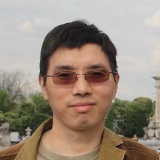
Zhiyong He, PhD, Biologist, R&D, NIST

Dr. Zhiyong He is a Biologist in Biomarker and Genomic Sciences Group of Biosystems and Biomaterials Division at NIST. He is interested in the metrology of cancer biomarkers and development of standards and reference materials for cancer biomarker clinical assays.
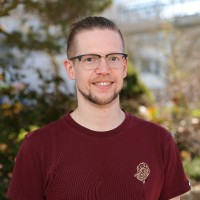
Philipp Henning, PhD, Team Lead, Research and Development, IBA Lifesciences

Philipp Henning received his Master’s degree in Nanoscience from the University of Kassel. During his PhD thesis, he investigated disease-associated mutations in the human cGMP-dependent protein kinase I regarding their influence on enzyme activity and activation. In 2023, Philipp joined IBA Lifesciences' Research and Development Department as a scientist. Now, as the new Team Leader in R&D, he is responsible for planning and coordinating the department's research activities.

Kristoff Homan, PhD, Senior Principal Scientist, Discovery Biotherapeutics, Bristol-Myers Squibb Company

Kristoff Homan is a Senior Principal Scientist in Discovery Biotherapeutics at Bristol Myers Squibb where he is the Cambridge site head for the Protein Production and Quality Attribute group. Kristoff was engaged in structure based small molecule inhibitor identification and optimization through his PhD in Structural Biology at Purdue University and post-doctoral research at the University of Michigan under the guidance of John Tesmer. For the last 10 years, Kristoff has had several roles in protein sciences and protein engineering of biotherapeutics at Abbvie and BMS. In additional to design and production experience across a wide range of therapeutic modalities, Kristoff has served as a project leader for multispecific and immunocytokine programs in immunology and oncology.

Robert M. Hughes, PhD, Associate Professor, Chemistry, East Carolina University

Robert Hughes received a PhD in Bioorganic Chemistry from UNC-Chapel Hill in 2007 and performed post-doctoral studies at Duke University and UNC - Chapel Hill. In his current position at East Carolina University, he leads a group of graduate and undergraduate scholars with a primary emphasis on the development of optogenetic protein-based reagents for the control and monitoring of biochemical pathways. Ongoing projects include the development of light-activated biosensors for the detection of oxidative and energetic stress in cells; optogenetic reagents that initiate biochemical pathways ending in cell death; and library-based methods for the production of improved protein chimera via a linker optimization strategy. Other areas of interest include the creation of novel immobilized enzyme formulations with biotechnology applications and the development of protein biocatalysts for the asymmetric synthesis of pharmaceutical compounds.

Bushra Husain, PhD, Director of Assay, Profiling and Pharmacology, AstraZeneca

I am a PhD biochemist with over 12 years of experience in pharmaceutical companies and academia. My research has focused on functional characterization of novel format antibodies, engineered proteins, as well as AAVs for the delivery of novel cargos. Over the years I have worked on the design and functional assessment of antibodies with diverse mechanisms of action, such as immune cell engagers, ADCs, stromal targeting multi-specific antibodies, targeted radioligand therapies, cytokine grafts, and others. I have served as a project champion for multiple large molecule programs, managing milestones from target ideation to lead selection and development. In addition to my experience in protein engineering and assay development, I have contributed to the development of sophisticated cell-surface receptor characterization techniques that were used to identify and validate novel large molecule targets, and that have also resulted in a number of high impact publications.

Anne Huuskonen, Senior Scientist, Industrial Biotechnology & Food Solutions, VTT Tech Research Center of Finland

Anne Huuskonen is a molecular biologist and biochemist at VTT Technical Research Centre of Finland Ltd. She has over 20 years of experience working with filamentous fungal hosts for production of industrial enzymes and therapeutic proteins. Her work has in recent years focused on glycoengineering and strain improvement of Thermothelomyces heterothallica C1.

Mary Jessel, PhD, Senior Vice President, Global Medical Affairs, Telix Pharmaceuticals

Dr. Jessel has over 15 years of pharmaceutical, biotechnology and drug development experience and has proven expertise in building effective Medical Affairs infrastructure, launch and product lifecycle strategies. She is passionate about innovation that improves unmet medical need and enhancing the accessibility and comprehensibility of complex medical and scientific information. Mary has led successful product launches at Ionis Pharmaceuticals and Akcea, drug development at Alcamena Stem Cell Therapeutics, and drug development research at the University of California, San Francisco. Mary holds a PhD in Neuroscience from the University of Michigan and MBA from Portland State University.
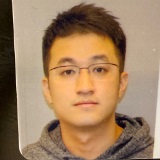
Yixiang Jiang, PhD, Research Scientist, New York University

Dr. Yixiang Jiang is a Research Scientist at the Neuroscience Institute, New York University Grossman School of Medicine, specializing in tauopathy and synucleinopathy research. He earned his PhD in Chemical Biology from Peking University in 2019. Dr. Jiang's work focuses on peptide chemical biology and protein/antibody engineering, particularly developing single-domain antibodies (sdAbs) for non-invasive imaging and treatment of neurodegenerative diseases. His research has been published in journals such as Science Advances (2023, 2021, and 2018), ACS Nano (2019), and Molecular Neurodegeneration (2024), and he has received prestigious awards, including the WuXi AppTec Academic Scholarship. Additionally, he is a recipient of the Alzheimer's Association Research Fellowship (AARF) for his work on single-domain antibody-based protein degraders targeting Alzheimer's disease. Dr. Jiang's academic and professional achievements highlight his dedication to advancing the understanding, diagnosis, and treatment of age-related degenerative diseases.
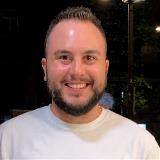
Mark C. Julian, PhD, Principal Scientist, Biologics Drug Discovery, Biogen

Mark Julian is an antibody discovery scientist within Biogen’s Biologics Drug Discovery group. His work focuses on therapeutic discovery and optimization using in vitro yeast display for traditional IgGs and single-domains. Prior to joining Biogen, he obtained his PhD at Rensselaer Polytechnic Institute. His research centered on antibody affinity/stability trade-offs during affinity maturation. Currently, Mark’s work at Biogen has centered around antibody discovery with an emphasis on integrating high-throughput developability screens and machine learning methods as early as possible in the initial discovery process to enable prediction of drug-like candidates.
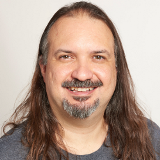
H. ümit Kaniskan, PhD, Associate Professor, Laboratory of Dr. Jian Jin, Pharmacological Sciences, Icahn School of Medicine at Mt. Sinai

H. ümit Kaniskan is an Associate Professor in the Department of Pharmacological Sciences and Associate Director of Mount Sinai Center for Therapeutics Discovery at the Icahn School of Medicine at Mount Sinai. He earned his PhD in organic chemistry at Case Western Reserve University under the supervision of Dr. Philip Garner. During his doctoral study, he completed the formal total synthesis of Bioxalomycin ß2 and Cyanocycline A. He then pursued his postdoctoral studies in Dr. Movassaghi's group at Massachusetts Institute of Technology (MIT), while working on the synthesis of Myrmicarin alkaloids. In January 2013, Dr. Kaniskan joined Dr. Jin's laboratory at the University of North Carolina at Chapel Hill and later at the Icahn School of Medicine at Mount Sinai as a postdoctoral researcher in the Department of Pharmacological Sciences. His research focuses on the targeted protein degradation (TPD), development of inhibitors of protein methyltransferases as well as biased ligands of G protein-coupled receptors, in efforts to discover innovative therapeutics for the treatment of human diseases including cancer and brain disorders. Dr. Kaniskan has published more than 40 peer-reviewed papers is also an inventor of 9 published international patent applications.
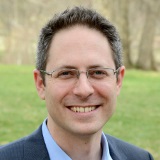
Gilad Kaplan, PhD, Director, Biologics Engineering, AstraZeneca

My background is in using protein and antibody engineering to develop Biologic Therapeutics. During my PhD studies at Tel Aviv University, I studied the conformational changes in HIV gp120 using conformationally sensitive antibodies. I then moved on to design more stable and less immunogenic anti-cancer immunotoxins during my postdoctoral studies at the National Cancer Institute. After my postdoctoral fellowship I started working for AstraZeneca where I am currently an Associate Director and head of the Developability and Analytics group at the department of Biologics Engineering (BE). In this capacity I have contributed to multiple pipeline projects, including AstraZeneca’s anti-SARS-COV-2 antibody cocktail AZD7442 (EVUSHELD).

Pankaj Karande, PhD, Associate Professor, Chemical & Biological Engineering, Rensselaer Polytechnic Institute

Dr. Pankaj Karande is an Associate Professor in Chemical and Biological Engineering at Rensselaer Polytechnic Institute. He was awarded his B.S. in Chemical Engineering from Mumbai University Institute of Chemical Technology and his Ph.D. in Chemical Engineering from the University of California, Santa Barbara. Dr. Karande was awarded an Anna Fuller Postdoctoral Fellowship in Molecular Oncology, and he conducted postdoctoral research in the Center for Cancer Research at Massachusetts Institute of Technology before joining the faculty at Rensselaer. He has received a variety of awards and honors in his career, including the Excellence in Classroom Instruction Award and the Outstanding Teaching Award from Rensselaer Polytechnic Institute. He also received the Alzheimer’s Association New Investigator Research Award, the Goldhirsh Brain Tumor Research Award, and a Bronze Edison Award in the Best New Product in Science and Medical Category. In addition, he has been issued multiple patents in the areas of Formulation Discovery and Novel High Throughput Screening Platforms. Over the last 15 years, Dr. Karande’s research has focused on the use of peptide ligands for developing efficient downstream bioseparation processes.
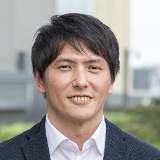
Hitoshi Katada, PhD, Head, Biologics Engineering, Chugai Pharmaceutical Co. Ltd.

Hitoshi Katada is heading biologics engineering function in Chugai. He received his Ph.D. in engineering from the University of Tokyo. After he joined Chugai in 2011, he has been working on the development of antibody technology, optimization of lead antibodies, and pharmacology for cancer immunotherapy. In 2021 he was transferred to Chugai Pharmabody Research in Singapore as a director of protein production unit. In 2023, he was transferred back to Chugai Japan and is responsible for antibody engineering.

Tadayoshi Kawasaki, PhD, Director, DRK Bioprocess Technology Consulting, Technical Advisor of Noritake Co., Ltd.

Tadayoshi Kawasaki is a bioprocess technology consultant. He received his PhD in Science from Hokkaido University in 1984. He studied biopolymer chemistry. In 1984, he joined Pharmacia Biotech Japan (Civita), a subsidiary of a Swedish biotechnology company. He was involved in the development of biopolymer separation technology and the process development to meet the diverse needs of the pharmaceutical industry. In 1997, he became General Manager of Genzyme Transgenics Japan Co., Ltd., where he introduced biopharmaceutical manufacturing technology using genetically engineered animals. However, following the outbreak of mad cow disease in the UK, restrictions were imposed on the use of mammalian-derived raw materials in biopharmaceutical manufacturing, and Genzyme Transgenics was forced to withdraw from its business in Japan. In 1999, he moved to Nihon Millipore Co., Ltd. as a director and was in charge of the bioprocessing business and the management of the Yonezawa Filter Plant. During his tenure at the company, he acquired knowledge of filtration technology and had the opportunity to be exposed to cutting-edge technology in biopharmaceutical manufacturing. During that time, he was invited to the Startup Support Center of the AIST, where he was involved in the launch of GlycoGene Co., Ltd. In July 2006, he was invited to work at GE Healthcare Co., Ltd. (Citiva) as a technical advisor in the bioprocessing division, where he worked until 2016. Since 2016, he worked at the MAB (Manufacturing Technology Association of Biologics) as a director of research and technology development. He organized several projects, and also developed several innovative technologies such as "Column-less Continuous Purification System", "Two-Column Switching Continuous Purification System" and "Single-Pass UF/DF System", so on. He currently serves as a technical advisor to MAB. He also serves as a technology development advisor for Noritake Company Limited, supporting the development of a "Column-less continuous purification system." As mentioned above, he has over 40 years of experience and a career in the biopharmaceutical manufacturing process, and has extensive knowledge and connections, including within Japanese pharmaceutical companies.
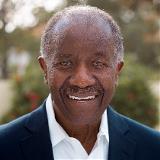
John K. Kawooya, PhD, Private Consultant of Robotics-Plate-Based-Ultra-HT Biologics Purification

Director, Biologics Optimization, Discovery Research, Amgen, Inc.; PhD, University of Illinois at Urbana-Champaign; Postdoctoral at the University of Chicago and University of Arizona, Tucson; Visiting Scientist, University of Rio de Janeiro; over 20 years of industrial experience in column protein purification and high-throughput magnetic protein purification technologies.

Karen E Khar, PhD, Executive VP, Sales & Bus Development, Levitate Bio

Karen Khar, PhD, is a recognized expert in computational biology, with over a decade of experience specializing in protein modeling and design. Since joining the Rosetta Modeling community in 2012, Karen has honed her expertise on the cutting-edge methods developed within this renowned group. In her role as Executive Vice President of Sales & Business Development at Levitate Bio, she collaborates with leading biotech, pharmaceutical, and research companies to deliver tailored software and services that drive success in protein engineering. Karen’s deep understanding of computational approaches spans biologics, agricultural proteins, synthetic biology, diagnostics, and beyond, empowering her to align clients with the most effective solutions for their unique goals.
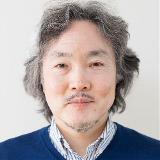
Takanori Kigawa, PhD, Senior Scientist, RIKEN Center for Biosystems Dynamics Research

Takanori Kigawa, Dr. Sci., is Senior Scientist of RIKEN Center for Biosystems Dynamics Research (BDR), Japan. He graduated from Graduate School of Science, the University of Tokyo in 1994 and started his professional career as a research scientist in RIKEN. He has developed a variety of technologies related to the cell-free protein synthesis system and NMR-based structure biology, and most of them were patented and commercialized.

Su Hyun Kim, PhD, Postdoctoral Researcher, University of California-San Diego

My research focuses on the development and optimization of genetic engineering platforms to enhance the phenotypic traits of mammalian cells, including Chinese hamster ovary (CHO) cells and HEK293 cells, using CRISPR screening. I am particularly interested in elucidating the molecular and cellular mechanisms that underpin these enhancements. By advancing our understanding of cellular mechanisms and improving therapeutic protein production, I aim to contribute significantly to the advancement of biopharmaceutical manufacturing and the development of more effective strategies.
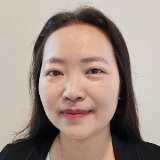
Yoon Kyung Kim, PhD, Scientist, Cell Biology, Xencor

Dr. Yoon Kyung Kim is a Principal Scientist in Discovery Biology & Pharmacology at Xencor. Since joining Xencor in 2017, Yoon has established and developed various in vitro bioassays for advancement of bispecific antibody pipelines. Especially, she has contributed for development of XmAb819 (ENPP3 x CD3 bispecific for renal cell carcinoma) as well as XmAb541 (CLDN6 x CD3 bispecific for ovarian cancer) programs as a lead scientist, and both are currently in clinical trials. Yoon obtained her PhD in Biomedical Engineering from the University of California, Irvine and completed postdoctoral studies at the University of California, Los Angeles, School of Medicine in the Department of Surgery.

Jeremy King, PhD, Senior Principal Scientist, Amgen, Inc.

Jeremy King leads the Structure-Based Engineering Team in Amgen's Protein Engineering department. He received his PhD from Washington University in St. Louis. After his PhD, he completed a postdoctoral fellowship in antibody engineering at the City of Hope.
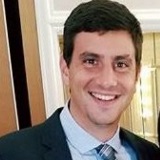
James Kostas, Senior Scientist, Protein and Structural Chemistry, Merck

James Kostas is a Senior Scientist in the Protein & Structural Chemistry group at Merck in West Point, PA. His focus is high-throughput expression, automation and streamlining data capture and data visualization through a variety of tools. Before joining Merck in 2017, he received his Master's degree at Thomas Jefferson University where he studied collagen fibril formation and its effect on post-surgical wound healing. In his free time, James can usually be found on the soccer field or spending time with his wife and daughter (who will be turning 3 during the conference).

Edward Kraft, PhD, Senior Director, Small Molecule Discovery, Leash Bio

With nearly two decades of pioneering experience in biotechnology and pharmaceutical research, I am currently serving as Senior Director of Small Molecule Discovery at Leash Bio. My career has been marked by groundbreaking contributions in high-throughput protein expression and production, protein design and characterization, and advancing hit-to-lead programs. Prior to Leash Bio, I held pivotal roles including at Recursion Pharmaceuticals, where I spearheaded ultra-high-throughput screen development for novel oncology drug discovery, leveraging high dimensional maps for drug discovery and launching programs for hit-to-lead. At Genentech, as Senior Scientific Manager and Group Lead, I led teams in high-throughput protein design, screening and production across E.coli, insect cells (baculovirus), and mammalian cells. This significantly enhanced efficiency and throughput through automation and innovative workflows while contributing to launching early projects into the portfolio. While at Monsanto, I contributed to and led discovery and collaborations in high throughput protein design and production, phenotypic screen development and receptor discovery. My expertise spans the integration of advanced technologies to accelerate drug discovery, from computational modeling and protein engineering to high-throughput screening methodologies. I continue to drive innovation at the intersection of biology and technology, aiming to unlock new therapeutic possibilities and advance healthcare globally.
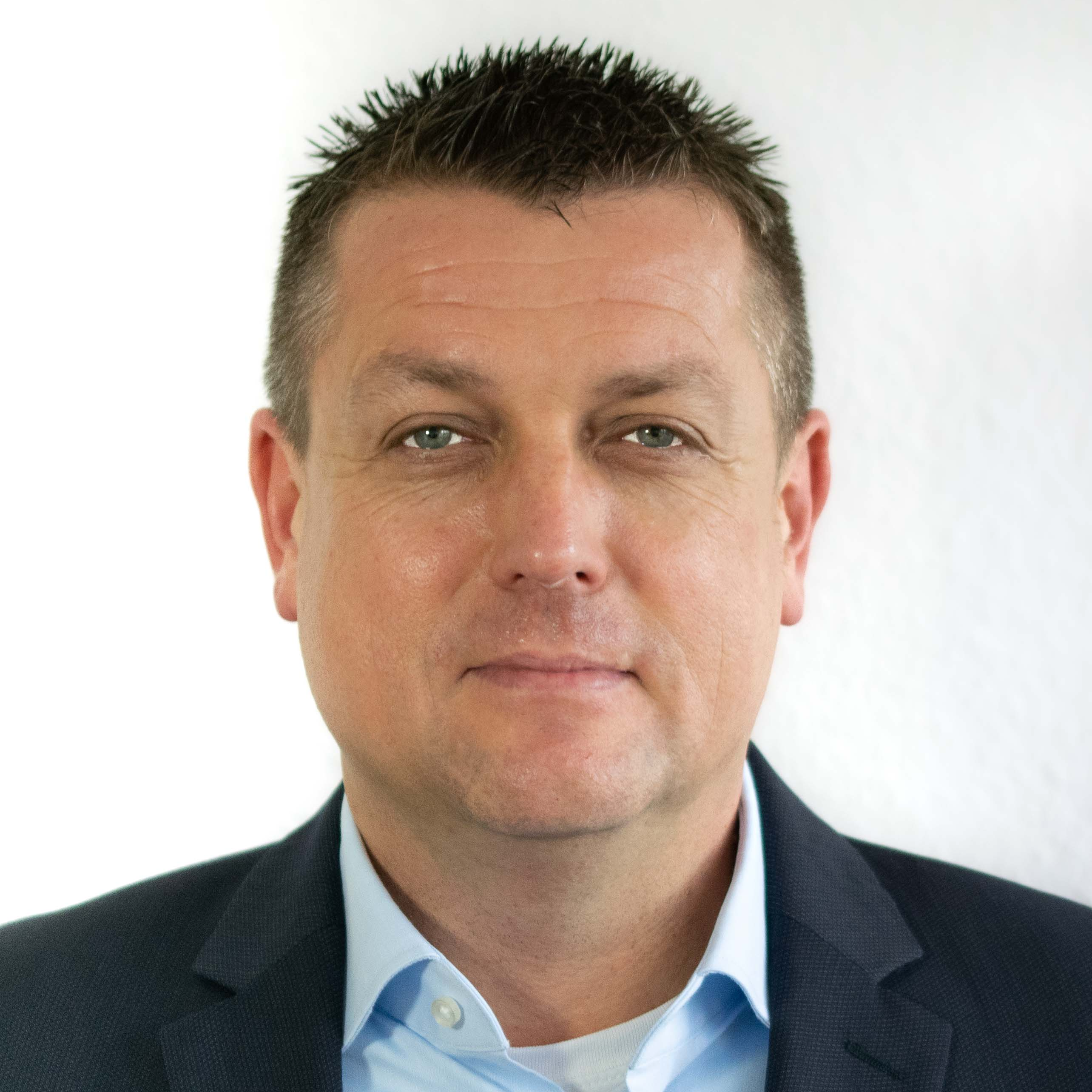
Jan Kubicek, CSO & Co Founder, Protein Production, Cube Biotech GmbH

Dr. Jan Kubicek holds a PhD in biology from the University of Duesseldorf/Helmholtz Research Center Juelich. He continued his work on the crystallization of membrane proteins as a post-doctoral fellow in Juelich. In 2006, he joined Qiagen where he was responsible for product development of recombinant protein expression, purification, and crystallization products. In cooperation with Prof. Joerg Labahn (now Centre for Structural Systems Biology (CSSB) at the DESY in Hamburg), he developed the Controlled in Meso Phase Crystallization (CIMP) method for the crystallization of membrane proteins. In 2012, he co-founded Cube Biotech and is now the CSO, overseeing all development in the laboratory.

Christine L. Kugel, Principal Scientific Researcher, Biomolecular Resources, Genentech, Inc.

Christine Kugel is a scientist within Genentech’s Protein Sciences Group in South San Francisco, CA. For the past 10 years she has specialized in the development of expression screening platforms for non antibody proteins in early stage research. Christine has spearheaded efforts in applying new technologies to accommodate large numbers of diverse proteins with automation and bioinformatics. In her current role, Christine is mainly responsible for the baculovirus expression vector platform and small scale HTP affinity purification of intracellular and membrane proteins.
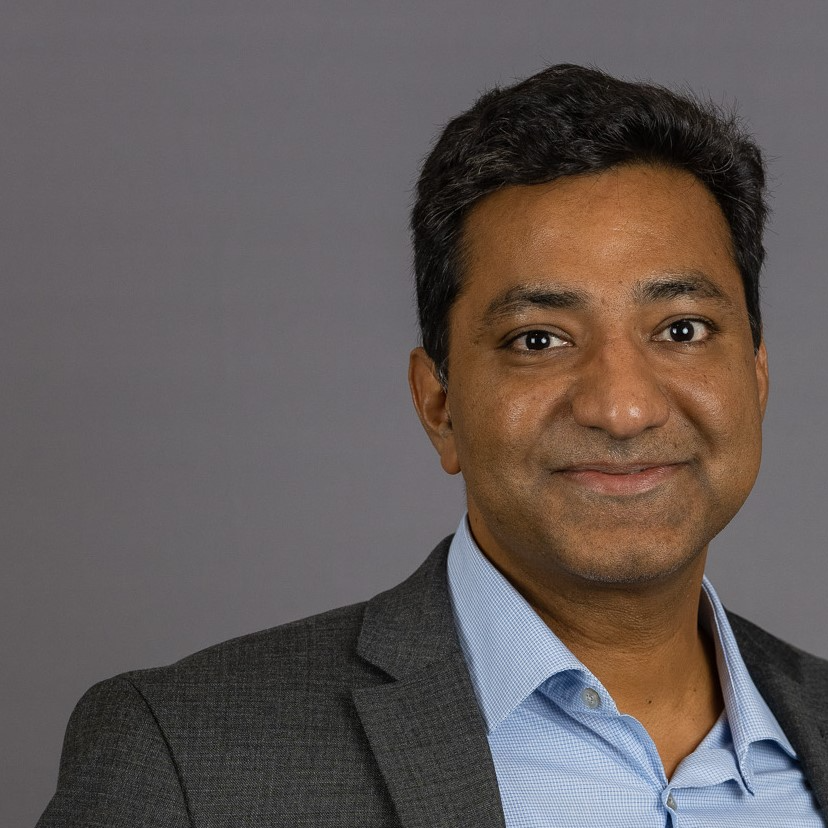
Senthil Kumar, GoSilico Sales Specialist, Chromatography, Cytiva

Senthil Kumar PhD GoSilico Sales Specialist-Chromatography Senthil is a GoSilico Sales Specialist for GoSilico Chromatography Modeling Software at Cytiva. He has extensive experience in Downstream process development and manufacturing of mAbs, Bi-specifics and Viral Vectors. He leverages his background in DSPD to address customer challenges in Biopharmaceutical process development through mechanistic modelling. He did his Bachelor’s in Biochemistry, Master’s in molecular biology and PhD in Industrial Biotechnology from Anna University. Senthil is passionate about helping scientists to accelerate process development for an efficient, robust, and scalable process, thereby facilitate in bringing drugs to market faster.

Sriram Kumaraswamy, Sr. VP Product & Marketing, Product & Marketing, Nicoya Lifesciences

Sriram is the Senior Vice President of Product and Marketing at Nicoya Life Sciences, an instrument company specializing in Digital Surface Plasmon Resonance (dSPR) for antibody characterization. Prior to Nicoya, he served as the Vice President of Strategy at Sartorius and managed the Octet product line at ForteBio. Sriram has over 20 years of experience supporting biopharma companies with tools for antibody screening, characterization, and optimization. He obtained his Ph.D. in Organic and Physical Chemistry from University of California, Berkeley.
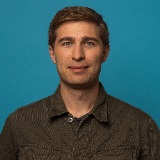
Kristian Le Vay, Expert Scientist, Scientific Research & Technology Collaborations, Coriolis Pharma Research GmbH

Kristian studied Chemistry at Bachelors and Masters level at the University of Bristol, UK, where he also completed his PhD in Functional Nanomaterials in 2017. Here, he researched the design and synthesis of complex artificial enzyme systems and specialized in protein biophysical characterization. He then moved to Germany, investigating RNA catalysis and stability as a postdoctoral researcher at the Max Planck Institute for Biochemistry, before joining Coriolis Pharma in 2022. Here, he focuses on novel methods for the developability assessment of monoclonal antibodies and other biotherapeutics.
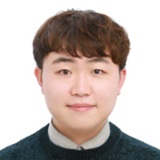
Woonghee Lee, PhD, Postdoctoral Fellow, Molecular Imaging Branch, National Cancer Institute, National Institutes of Health

Dr. Lee completed his undergraduate degrees in Life Sciences - Biotechnology at Kyungpook National University in South Korea, where he developed a keen interest in medical science. This passion led him to enroll in the M.S./Ph.D. Integrated Program in Biomedical Science at Kyungpook National University School of Medicine. During his Ph.D. studies, he focused on innovating radiopharmaceuticals for tumor visualization with minimal background noise using nuclear imaging, which deepened his understanding and fueled his interest in the field. Seeking to expand his expertise in radiotheranostics, he aims to gain extensive knowledge and hands-on experience in radiopharmaceutical therapy. This pursuit led him to join Dr. Escorcia E. Freddy's research team in the Molecular Imaging Branch (MIB) of the National Cancer Institute (NCI) in September 2022. His work focuses on developing radiotheranostic agents for cancers, with a specific focus on hepatocellular carcinoma (HCC) and neuroendocrine prostate cancer (NEPC). Dr. Lee's research goals include designing novel radiotheranostics with optimal signal-to- background ratios, conducting pre-clinical imaging and therapy studies to assess feasibility, and translating these innovations to clinical applications.
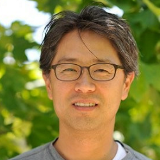
Sungjin Lee, PhD, Associate Director, R&D, Surrozen Inc

Sungjin obtained his Ph.D. degree in Molecular Neurobiology from University of Tokyo. After that, he continued the study as the postdoc working on neuronal synapse biology in Dr. Thomas Südhof Lab at Stanford University. Currently serving as Associate Director at Surrozen, a company pioneering Wnt signaling modulation for the regenerative medicine development, Sungjin has played a pivotal role in the development of cutting-edge therapeutics, from antibody discovery to the IND-enabling phase. Since joining Surrozen in 2017, he has been instrumental in the launch of several key therapeutic programs, including the company's retina disease pipeline.
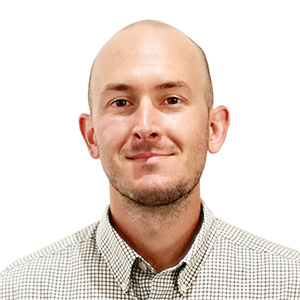
Parker Lee, Sales Applications Chemist II, Waters | Wyatt Technology

Dr. Parker Lee joined Wyatt Technology in 2022 after 5 years of work in macromolecule analytical development for various startups. As a field application scientist, he is responsible for working with customers to ensure that they can utilize Wyatt’s light scattering instrumentation most effectively to improve and accelerate their research.
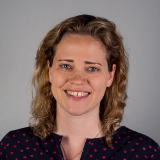
Sabrina Leslie, PhD, Associate Professor, Department of Physics, The University of British Columbia

Professor Sabrina Leslie studied honours physics and mathematics at the University of British Columbia twenty years ago before moving to UC Berkeley where she obtained her PhD in optical physics in 2008, followed by her Mary Fieser postdoctoral fellowship in biophysics at Harvard University 2009-2011. There she invented a tether-free, high-throughput single-molecule imaging technology called Convex Lens-induced Confinement (CLiC), which established her as a pioneer in single-molecule investigations. In 2012, she became an Assistant Professor at McGill University and founded her research group in the Physics Department. There she developed CLiC into a platform technology and used it for new single-molecule studies of nucleic acids, proteins, polymers, nanomaterials, biologics, and cells. In 2019 she was honored with the Young Investigator Award from the Biophysical Society of Canada, and in 2020 she was elected to the Royal Society of Canada (RSC) College of New Artists Scholars and Scientists. In 2021, she and her team re-located to the Michael Smith Labs at UBC where her Associate Professor appointment is joint with the Department of Physics and Astronomy and affiliated with the School of Biomedical Engineering, Genome Science and Applied Technology and Bioinformatics programs.

Nathan E. Lewis, PhD, GRA Eminent Scholar and Professor, Center for Molecular Medicine Complex, Department of Biochemistry and Molecular Biology, University of Georgia

Dr. Lewis is a Professor of Pediatrics and Bioengineering at the University of California, San Diego. He received his BS in biochemistry at Brigham Young University, and his PhD at UC San Diego, where he focused on proteomics and developing novel approaches for analyzing biological big data using genome-scale systems biology modeling techniques. Dr. Lewis completed his postdoctoral training at the Wyss Institute at Harvard Medical School, where he worked on genome editing and the use of systems biology for the interpretation of genetic screens. Dr. Lewis' lab integrates all of his previous work by focusing heavily on the use of systems biology and genome editing techniques to map out and engineer the cell pathways controlling mammalian cell growth, protein synthesis, and protein glycosylation.
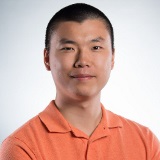
Xinbi Li, PhD, Associate Principal Scientist, Biologics Engineering, AstraZeneca

Xinbi Li is an Associate Principal Scientist in the Protein Analytics and Developability group at the department of Biologics Engineering (BE), where he focuses on protein analytics, developability assessment, and LC-MS work. Xinbi earned a BS degree in Pharmacy from Fudan University and a PhD in Chemistry from Worcester Polytechnic Institute. Before joining AstraZeneca, Xinbi was a Senior Scientist at Dragonfly Therapeutics.

Jinsha Liu, PhD, Senior Scientist, Tentarix Biotherapeutics

Jinsha Liu received her bachelor’s degree in Biosciences from Northeast Normal University in China and her master’s degree in cancer biology at California State University Fresno in the US. She continued her graduate training in neuroscience at Sanford Burnham Prebys Medical Discovery institute in La Jolla, CA, during which she focused on investigating the roles of T-cadherin (CDH13) and adiponectin in modulating synaptic plasticity to enable associative memory functions in mouse hippocampus. Jinsha joined Eli Lilly and company in 2018 as a postdoctoral scientist, and later as an advisor in research. During her postdoc training at Lilly, Jinsha established a novel discovery platform to identify novel cell-penetrating peptides, called NNJA platform for delivery of therapeutic cargos. Jinsha joined Tentarix Biotherapeutics in 2024, focusing on targeted multifunctional conditional effectors for precision medicine.
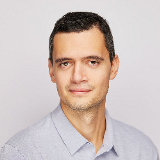
Randolph Lopez, PhD, CTO and Co-Founder, A-Alpha-Bio

Randolph Lopez is the CTO and Co-Founder of A-Alpha Bio, a start-up focused on the discovery and optimization of biologics therapeutics via massive protein-protein interaction datasets and machine learning. Prior to A-Alpha Bio, Randolph did his graduate work at the University of Washington where he pioneered research in synthetic biology, molecular computing, and DNA information storage.

James D. Love, PhD, Vice President, Automation & Process Optimization, Novo Nordisk AS

Dr. Love is heading an area utilising automation to advance drug discovery and development across the Novo Nordisk value chain. Prior to his work at Novo, he was working in the USA for 15 years at different academic and biotech companies, developing high-throughput methods focusing on antibody development and protein production, in particular integral membrane proteins. Prior to this, he was educated at Oxford and Cambridge University, where he trained as a structural biologist.

Matthew Lundberg, PhD, Associate Director, Protein Engineering, Tentarix Biotherapeutics Inc.

Matt Lundberg is the Head of Biotherapeutics Design at Tentarix Biotherapeutics, where he leads antibody discovery and engineering efforts. With nine years of experience in protein engineering and biopharmaceutical development, Matt has a proven track record in advancing therapeutic programs from discovery to early clinical stages. At Tentarix, he has played a key role in developing TNRX257, a novel LAG3-targeted IL2RBG agonist for immuno-oncology applications, advancing the program to non-human primate studies. His work has helped secure partnerships with major pharmaceutical companies, including AbbVie and Gilead. Matt's expertise spans protein engineering, in vitro display technologies, and computational structure-based design of multi-specific biologics. Previously, he contributed to advancing three antibodies to the clinic at AnaptysBio and secured patents for innovative therapeutics at RubrYc and Metacrine. Matt holds a Ph.D. in Biological Sciences from UC San Diego, with an emphasis on Protein Biochemistry and Structural Biology.
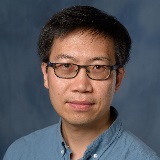
Dongwen Lyu, PhD, Associate Director, Target Discovery Core, University of Texas San Antonio Health Science Center

Dr. Dongwen Lv is an Assistant Professor/Research in the Department of Biochemistry and Structural Biology and the Associate Director of the Target Discovery Core (TDC) in the Greehey Children's Cancer Research Institute (GCCRI) at the University of Texas Health San Antonio (UTHSA). His current research focuses on understanding the mechanisms of cancer and aging and developing proteolysis targeting chimeras (PROTACs), molecular glue degraders (MGDs), and other kinds of degraders to treat cancer and age-related diseases.
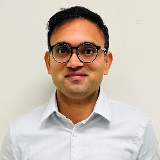
Hima Makala, Research Scientist, Molecular Imaging and Therapy, NCI, NIH

Dr. Makala obtained his Ph.D. in protein chemistry from SASTRA University, Tamil Nadu, India, in October 2020. His interest in oncology and drug discovery led him to join the Radiation Oncology Branch (ROB) of the National Cancer Institute (NCI) in 2022 for post-graduation work, where he unveiled the role of spliceosomes in the radiation resistance of glioblastoma. Seeking to expand his expertise, he aims to merge radiobiology principles with radiopharmaceuticals development and experimentation for both imaging and therapeutic applications. This pursuit led him to join Dr. Escorcia E. Freddy's research team at NCI, focusing on designing, engineering, and testing specific agents for the early diagnosis and treatment of radiosensitive hepatocellular carcinoma (HCC). Dr. Makala aims to develop novel radiotheranostic agents, leveraging radiation biology and protein chemistry to improve cancer patient treatment outcomes.
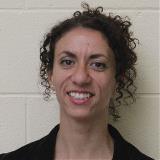
Aziza Manceur, PhD, Research Officer, National Research Council of Canada

Dr. Manceur is a research officer at the National Research Council Canada, a Research and Technology organization funded by the government of Canada. She is part of the Cell Culture Scale Up team, a team that specializes in the production of viral vectors and proteins using mammalian cells. She earned her PhD in biomedical engineering from the University of Toronto and her post-doctoral fellowship from the University of Pennsylvania.

Dalton Markrush, Scientist, Global Bioanalytics, Alloy Therapeutics

Dalton is a Senior Scientist at Alloy Therapeutics in the Global Bioanalytics group. Prior to Alloy, he worked at Compass Therapeutics within the High-Throughput Characterization group. Before joining Compass he received his Master's at Northeastern University. Experienced in the development of high-throughput screening methods, his focus is primarily based on binding and developability.

James D. Marks, MD, PhD

Dr. Marks is Professor and Vice-Chairman of the Department of Anesthesia and Perioperative Care at the University of California, San Francisco (UCSF) and Chief of Performance Excellence at Zuckerberg San Francisco General Hospital and Trauma Center (ZSFG). Dr. Marks received his medical degree from UCSF where he also completed residencies in Internal Medicine and Anesthesia and a fellowship in Critical Care Medicine. He received his Ph.D. in molecular biology from the Medical Research Council Laboratory of Molecular Biology in Cambridge, England. Dr. Marks is an internationally recognized pioneer in the field of antibody engineering, has had constant federal funding for 27 years and has authored more than 200 publications and 100 patents. In recognition of these scholarly achievements, he was elected to the National Academy of Medicine. As an entrepreneur, he has co-founded four biotechnology companies and currently serves on three biotechnology corporate boards.
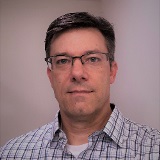
Michael S. Marlow, PhD, Director, Biologics CMC Research, Biotherapeutics Discovery, Boehringer Ingelheim Pharmaceuticals, Inc.

Trained as a protein structural biologist (Vanderbilt University) and biophysical chemist (University of Pennsylvania), I am currently applying many of the techniques, principles, and philosophies obtained from over seven years in the Early-Stage Development CMC arena (Regeneron) to Biotherapeutic Discovery Research processes at Boehringer Ingelheim. We are building our capabilities and platforms to push beyond accepted industry paradigms for characterization and developability assessments of research molecules, ultimately helping achieve Speed to Clinic.

Nicholas Marshall, PhD, Head of Protein Sciences, Invenra Inc.

Nicholas Marshall, PhD, adds a diverse background in protein biochemistry, biophysical characterization, protein engineering, and process development to Invenra. As the leader of the Protein Sciences group, Nick oversees production and characterization of R&D phase molecules, including biophysical characterization and developability assessments of lead molecules. Nick brings more than 10 years of experience in therapeutic protein discovery and drug development. Prior to joining Invenra, Nick worked in Process Chemistry Research and Development at Merck (MSD), where he used directed evolution and high throughput methods to develop enzymes needed for biocatalytic synthesis of active pharmaceutical ingredients. Before Merck, Nick worked with Everett Stone and George Georgiou at the University of Texas at Austin to discover therapeutic enzymes for immune oncology. Nick holds a PhD in Chemical Biology from the University of Illinois where he studied electron transfer in proteins.
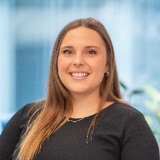
Cydney M. Martell, PhD Candidate, Department of Pharmacology, Northwestern University

Cydney Martell completed her Bachelor's degree in Chemistry at Kalamazoo College and is currently a PhD candidate in Gabriel Rocklin’s lab in the Pharmacology Department at Northwestern University. Her research focuses on investigating the biophysical determinants of protein aggregation to better understand and predict aggregation resistance.
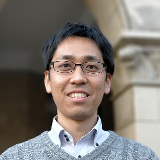
Ryo Matsunaga, PhD, Assistant Professor, Department of Bioengineering, School of Engineering, The University of Tokyo

Ryo Matsunaga, Ph.D., is an Assistant Professor in Department of Bioengineering at School of Engineering, the University of Tokyo. His expertise lies in protein engineering, where he designs and optimizes proteins by integrating high-throughput experiments with computational approaches. He received his Ph.D. from the University of Tokyo in 2015 and worked as a researcher at Toray Industries, Inc. from 2015 to 2020 before joining his current position at the University of Tokyo in 2020. His research aims to advance protein design through innovative techniques that combine cutting-edge experimental methods with advanced computational science, with the goal of contributing to the development of new technologies and applications in the field of bioengineering.

Thibault Mayor, PhD, Professor, Michael Smith Laboratories, Biochemistry & Molecular Biology, University of British Columbia

Dr. Thibault Mayor is a full Professor in the Department of Biochemistry and Molecular Biology and the Michael Smith Laboratories at the University of British Columbia. He completed his PhD studying centrosome regulation during cell division at the Department of Molecular Biology, University of Geneva, Switzerland, and the Max Planck Institute of Biochemistry, Germany. During his postdoc at Caltech, he developed methods to study the ubiquitin-proteasome system using protein mass spectrometry. After moving to Vancouver, he established his research program to characterize quality control pathways targeting cytosolic misfolded proteins for degradation. Dr. Mayor received a CIHR New Investigator Award and a Michael Smith Foundation for Health Research Career Award. His lab has also conducted studies on protein aggregation and bottlenecks in recombinant protein production.

Ralph Mazitschek, PhD, Assistant Professor, Harvard Medical School; Co-Director of the Chemical Biology Platform, Center for Systems Biology, Massachusetts General Hospital

Dr. Mazitschek is an Assistant Professor at Harvard Medical School and Co-Director of the Chemical Biology Platform at the Center for Systems Biology at Massachusetts General Hospital (MGH). Dr. Mazitschek is also Assistant Professor in the Department of Immunology and Infectious Diseases at the Harvard T.H. Chan School of Public Health, and Associate Member of The Broad Institute of Harvard and MIT.Dr. Mazitschek graduated from the University of Leipzig in 2002 with a PhD in Organic Chemistry. He continued his research at the Institute of Chemistry and Cell Biology (ICCB) at Harvard Medical School first as postdoc and later as Institute Fellow, from which he joined the Chemical Biology Program at the newly founded Broad Institute of Harvard and MIT. In 2008 he joined the faculty of the Center for Systems Biology at the Massachusetts General Hospital to continue his independent research.
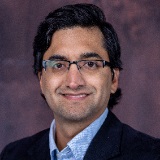
Romel Menacho-Melgar, PhD, CEO, Roke Biotechnologies

Dr. Menacho-Melgar obtained his Ph.D. at Duke University, under Dr. Michael D. Lynch. After his graduate studies, he founded Roke Biotechnologies focused on advancing protein manufacturing. At Roke, he leads the manufacturing and commercialization of molecular biology reagents. Dr. Menacho-Melgar has 13 peer-reviewed publications and is co-inventor in 6 patents. His work includes developing readily scalable standardized processes for protein expression, eliminating the need for any process development. It also includes the engineering of novel E. coli strains with advanced capabilities such as enhancing protein titers or reducing downstream purification steps.
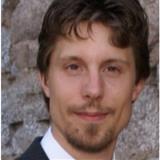
Simon A. Messing, PhD, Scientist II, Frederick National Lab & Protein Expression Lab, Leidos Biomedical Research, Inc.

Dr. Messing received his Ph.D from Johns Hopkins School of Medicine in 2008, studying structural biology in the lab of Mario Amzel. While in the lab, he solved the structures of viviparous14, a dioxygenase in maize and key enzyme in abscisic acid production, and the structure of the RNA, pyrophosphohydrolase BdRppH, from Bdellovibrio bacteriovorus involved in RNA decapping. He subsequently moved on to the Laboratory of Fred Dyda at NIDDK, where he worked on transposases and solved the structure of TnpA(REP) from E. coli. In 2015, he joined the Protein Expression Laboratory at Frederick National Labs, where he purifies difficult-to-produce protein reagents for the RAS Initiative.
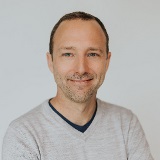
Ben Miller, Head, Operations, Leash Bio

Ben draws on two decades of experience working at the intersection of Machine Learning, Engineering, Lean Manufacturing and Molecular Biology with a variety of teams and technologies at Glycofi, Velocity11, Myriad Genetics, Recursion, Insitro, and now as Head of Operations at Leash Biosciences.
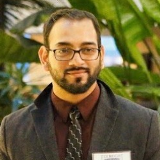
Rahul Misra, PhD, Scientist, Biophysics and Process Analytical Technology, Sanofi

Dr. Rahul Misra is a Scientist in the Biophysics and Process Analytical Technology platform at Sanofi Pasteur, Canada. He develops analytical methods for size and structural characterization, antigen content, purity analysis and thermal stability of vaccine candidates. He is also working on providing inline/online PAT solutions to monitor CQA’s in vaccine manufacturing process. Prior to joining Sanofi, he has worked as a Scientist in Eurofins Canada, Keenan Research Centre of St. Michael’s Hospital, and Intas Pharmaceuticals. He was a Fulbright Postdoctoral Research Fellow at Purdue University, USA and received a PhD in Biochemistry at the Indian Institute of Technology, Delhi. He is co-author of 20 research papers and co-inventor of patents in the field of nanomedicine and drug delivery.
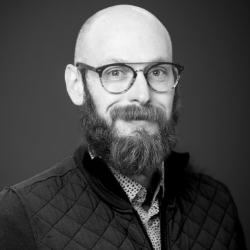
Carter Mitchell, CSO, Purification & Expression, Kemp Proteins

Dr. Carter Mitchell serves as the CSO for Kemp Proteins, where he leads a team of 40+ researchers focused on rapidly developing novel proteins within an ISO13485 and AAALAC accredited lab. With over 20 years of experience, Dr. Mitchell is a skilled protein chemist, enzymologist, and structural biologist adept at isolating and characterizing challenging proteins from various sources. His PhD in Structural Biology involved enzymatically and structurally characterizing multidomain proteins related to metabolite biosynthesis. Dr. Mitchell has also led drug discovery pipelines, isolating and characterizing bioactive small molecules, peptides, and proteins from mammalian microbiomes and marine aqueous extracts. Prior to joining Kemp Proteins, he served as acting CTO at a Biotech startup, where he established and managed a protein expression and isolation laboratory. Currently, at Kemp Proteins, Dr. Mitchell is pioneering the development of ML-based tools to gain insights into the hypothetical global proteome.

Deborah Moore-Lai, PhD, Vice President, Protein Sciences, ProFound Therapeutics

Deborah joined ProFound Tx in 2024 as the VP of Protein Sciences to lead protein and antibody development campaigns. Prior to ProFound Tx, Deborah was with Abcam for 5 years, leading the Protein Development and Sequencing Platforms, responsible for protein and sequencing needs for Abcam. Prior to Abcam, she spent 16 years working in both the reagent and therapeutic spaces. For many years she led Antibody Production at Cell Signaling Technology. From there she joined Merck Research Laboratories, where she led the team responsible for antigen & antibody generation within Biologics Discovery.
- Cutting-Edge Tools for Purification and Quality Assurance
- Automation in Protein Sciences
- Methods for Developability Analysis
- Recombinant Protein Production - Part 2
- Recombinant Protein Production - Part 1
- Targeted Radioligand Therapies
- Next-Generation Protein Degradation
- Characterization for Novel Biotherapeutics
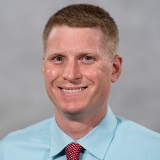
Zachary S. Morris, PhD, MD, Department Chair and Endowed Professor of Human Oncology, University of Wisconsin Madison

Dr. Zachary Morris, MD/PhD is the Chair and Paul Harari Professor of Human Oncology at the University of Wisconsin School of Medicine and Public Health. His research lab is focused on the translational investigation of the radiobiology and immunologic effects of radiopharmaceutical therapies and the effective integration of these with immunotherapies.
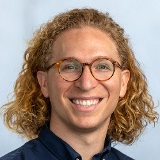
Marco Mravic, PhD, Assistant Professor, Department of Integrative Structural and Computational Biology, Scripps Research Institute

Dr. Mravic is a Latino-American scientist receiving BS from UCLA in Chemical Engineering and PhD from UCSF in Biophysics with Bill DeGrado. Mravic started his lab at Scripps after PhD as a faculty and is Assistant Professor in Dept Integrative Structural and Computational Biology. The lab uses computational approaches to understand and pro-actively engineer the principles of stability and recognition for molecules in the lipid environment. Major work includes de novo design of transmembrane protein assemblies to test folding principles and engineering synthetic proteins that recognize and regulate natural membrane proteins in the cell of increasing complexity to dissect mechanism or as therapeutics. He of Puerto Rican heritage and passionate about providing opportunities in science for those with disadvantages.
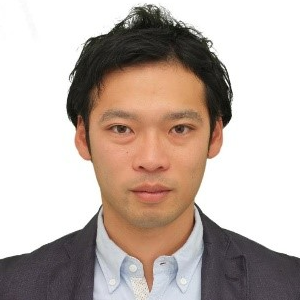
Hayato Nagano, Researcher, Research Institute Bioscience Products & Fine Chem, Ajinomoto Co Inc

Hayato Nagano holds a PhD in Engineering (protein science) from University of Tsukuba. For over 10 years, he has engaged in purification process development and tech transfer of biopharmaceuticals produced by Corynex®, Ajinomoto’s patented protein expression technology. Hayato experienced tech transfer and cGMP manufacturing of drug substances and plasmid DNA at Ajinomoto Bio-Pharma Services US (formerly Ajinomoto Althea Inc) during his career. Currently, Hayato is lead researcher of Corynex® at Ajinomoto Co., Inc.
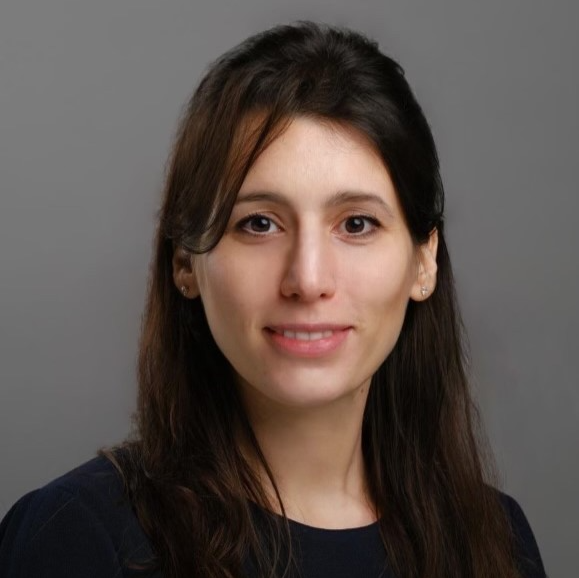
Rouba Najjar, Head of MKT and BD, Product Divisions, CPBU, GenScript USA Inc.

Rouba Najjar is the Head of Marketing and Business Development at GenScript Biotech. Over the last decade, Rouba has specialized in providing scientists with automated solutions that simplify research and development. Her work as Product Manager at Hamilton Robotics, Automation Team Lead at Baylor College of Medicine, and currently as the Head of Product Marketing at GenScript Biotech has been focused on providing automated solutions and enhanced tools. Passionate about providing automated alternatives that improve research outcomes, her team is generating innovative, reliable, and high-quality reagents and instruments that support a wide variety of life science research and development areas.

Gowri Nayar, Research Scientist, Biomedical Data Science, Russ Altman Lab, Stanford University

Gowri Nayar is a computer science researcher with extensive experience in both applied and theoretical machine learning, particularly in the genomics and healthcare fields. She holds a B.A. in Computer Science and Cognitive Science from the University of Pennsylvania and an M.Sc. in Computer Science with a focus on Algorithms and Machine Learning from the Georgia Institute of Technology. She is currently working towards her Ph.D. in Biomedical Informatics (BMI) at Stanford University under the guidance of Dr. Russ Altman. Her current work focuses on using high-throughput protein data to enhance function prediction across the proteome. Gowri is also an active participant in academic conferences and peer mentoring programs, committed to advancing both her research and the broader scientific community.
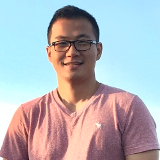
Ben Niu, PhD, Principal Scientist, Discovery Biotherapeutics, Bristol-Myers Squibb Company

Ben Niu is Principal Scientist at Bristol Myers Squibb (BMS), leading a pioneering team with focus on quality attributes of biotherapeutics using various separation and characterization techniques. With eight years of experience in biopharma industry, Ben specializes in analytical characterization in both R&D and CMC environments, driving critical insights for drug discovery & development. He champions the integration of automation and machine learning to bring new insights to analytical workflows, while also nurturing his passion for hiking, family time, and coding.
.tmb-0.jpg)
Vincent Noireaux, PhD, Professor, Synthetic Biology and Biological Physics, University of Minnesota
.tmb-0.jpg)
Vincent Noireaux is a Professor of Synthetic Biology and Biological Physics at the University of Minnesota in the Department of Physics. His lab develops E. coli cell-free transcription-translation (TXTL) systems. TXTL is used to produce proteins in vitro and to construct and characterize biochemical systems such as gene circuits, protein self-assemblies, and synthetic cells. Dr. Noireaux earned his PhD at the Curie Institute in Paris and did a postdoc at The Rockefeller University in New York City. http://www.noireauxlab.org/
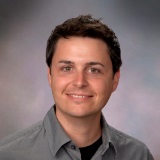
Nathaniel Nucci, PhD, Associate Professor, Biological and Biomedical Sciences, Rowan University

I am a molecular biophysicist with expertise in experimental analysis of protein structure, dynamics, and function using fluorescence and nuclear magnetic resonance spectroscopy. My lab specializes in method development and applications of reverse micelle technology for structural biology, biophysical studies, and nanotech/biomedical applications. Our current method development work includes structure-based screening of receptor protein binding for small molecules, nanoparticle synthesis, long-term storage of proteins at room temperature, and packaging of protein-based cargo. We also engage heavily in basic research including structure/function studies of proteins that modulate switchable liquid-liquid phase separation, measurement of protein hydration dynamics, and thermodynamic analysis of proteins in bio-mimetic systems.
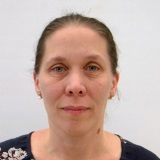
Erika Orban, PhD, Principal Scientist, Protein Therapeutics & Biochemistry & Cell Enginering, Zoetis Inc.

Dr Erika Orban was born in Hungary, where she received her master`s degree in molecular biology. She joined the Research Group of Peptide Chemistry Hungarian Academy of Sciences, where her research focused on selective tumor targeting. After receiving her PhD, she joined the Institute of Biophysical Chemistry at Goethe University Frankfurt (Germany) as an Alexander von Humboldt Postdoctoral Fellow, where she was working on the cell-free expression of G-protein Coupled Receptors. After returning to her home country, she became first a bioassay developer, later the lead of the Binding Assay Team at the Bioanalytical Department, Biotechnology Business Unit at Chemical Works of Gedeon Richter. She moved to the United States in 2020 for family reasons and she joined Zoetis as a Principal Scientist in 2021 and she leads the Protein Discovery and Bioanalytic Team under Protein Therapeutics.

Sairupa Paduchuri, Scientist III, Biomolecular Research, Genentech, Inc.

Sairupa is a Scientist 3 at Genentech in the BioMolecular Research (BMR) department’s Expression Analysis team. She has been at Genentech for over 10 years in the BMR and other departments. She supported purification and characterization of antibodies at mid-scale for various antibody discovery campaigns, and screened more than 300 IgSF proteins using HTS techniques based on the Avexis method to identify previously undocumented interactions. In her current role, Sairupa is responsible for performing and optimizing small scale High-Throughput Expression Analysis of Secreted Proteins and Extracellular Vesicles.

John E. Pak, PhD, Senior Scientist & Group Leader, Protein Sciences, Chan Zuckerberg Biohub

John Pak leads the Protein Sciences team at the Chan Zuckerberg Biohub, San Francisco. In partnership with the Bay Area's leading academic institutes, UCSF, Stanford, and UC Berkeley, Pak's team at the Biohub develops biochemical and biophysical methods to enable new discoveries across a broad cut of virus-receptor and virus-antibody interactions. His work has been published in top journals, including Nature and Nature Biotechnology, receiving ~4000 citations. His current work increasingly uses machine learning approaches for antigen design and hypothesis generation. Prior to joining the Biohub, John determined x-ray crystal structures of biologics and small molecule/target complexes at BioMarin Pharmaceutical Inc. and, before that, he was a postdoctoral associate with Robert Stroud at UCSF working on membrane protein structural genomics.

Ravi B. Patel, MD, Assistant Professor and Physician, Radiation Oncology, University of Pittsburgh

Ravi B. Patel, MD, Ph.D., is an Assistant Professor at the UPMC Hillman Cancer Center and Director of Radiopharmaceutical therapy in Radiation Oncology, specializing in the study and treatment of skin and genitourinary malignancies. Dr. Patel also maintains an active, translational research laboratory. Dr. Patel is board-certified in radiation oncology. He completed a combined MD/Ph.D. program at Case Western Reserve University. Dr. Patel received both his masters and doctoral degrees in Biomedical Engineering under the mentorship of Dr. Agata Exner and he published 10 manuscripts over the course of his graduate training. Upon completion of medical school, he completed a preliminary medicine internship at Akron General Medical Center followed by a residency in radiation oncology at University Hospitals Cleveland Medical Center. After residency, Dr. Patel joined the Department of Human Oncology at the University of Wisconsin where he was a Benston Translational Research Fellow. During this time, Dr. Patel received several grants and awards for his work including the RSNA Research Fellow Grant, ASCO Young Investigator Award, Immuno-oncology Young Investigator’s Forum Abstract Presentation Award, and an Abstract Travel Award for Society of Immunotherapy in Cancer. Based on his fellowship work, Dr. Patel received an NIH KO8 career development award and joined the faculty at Hillman Cancer Center as a physician-scientist. Since joining Hillman, Dr. Patel has received an NIH R01 award, Head and Neck Cancer SPORE Career Enhancement Award, and he has several industry sponsored clinical trials for which he is a primary investigator. Dr. Patel has published over 46 peer-reviewed manuscripts, 3 book chapters, and presented over 80 abstracts at national meetings.
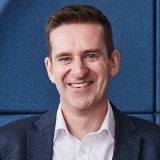
Jeremy Paull, Vice President, Development & Regulatory Affairs, Starpharma Holdings Ltd.

Dr Jeremy Paull is VP Development and Regulatory Affairs at Starpharma Pty Ltd, based in Melbourne, Australia. Jeremy has more than 25 years' experience in drug discovery, development, registration and commercialisation. Starpharma is focussed on helping patients with significant illness, such as cancer, achieve improved health outcomes through the application of its DEP dendrimer platform for the creation of high value products in cancer radiotheranostics and other applications.
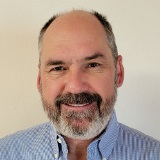
Peter Pavlik, PhD, Senior Director, Protein Engineering, Aptevo Therapeutics

Peter Pavlik, PhD, serves as the Senior Director of Protein Engineering at Aptevo Therapeutics. In his career at Aptevo and previously MedImmune/AstraZeneca and Los Alamos National Labs, he has implemented novel technologies to streamline discovery of binding domains and their incorporation into stable and efficacious biotherapeutics. Peter has an oversight over all processes currently used at Aptevo which are optimized to multiple areas of drug development from target validation to antibody discovery to IND and to clinic. Peter has a unique understanding of the biopharma industry from the large and small company perspectives.
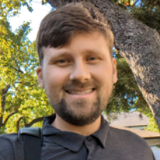
Joseph Pazzi, Director, Formulation, reThink64 Bionetworks

Bio: Dr. Joseph Pazzi is a biophysicist who has worked on complex lipidic structures and dynamics for over a decade now in academia, non-profits and industry. His work at UCM was on exploring the optimization of giant unilamellar vesicles and artificial cells for the encapsulation of proteins and other macromolecular cargoes. At the STEM education nonprofit ASDRP, he has been a PI for projects exploring novel LNP designs for peptide delivery. And most recently, as Director of Formulation at the startup reThink64, he has invented a brand new construct that forms lipid membrane bound tubules as an alternative to LNP delivery, which he will showcase in his talk.

Sumera Perveen, PhD, Research Associate, Structural Genomics Consortium (SGC), University of Toronto

Dr. Sumera Perveen has over 10 years of experience in biologics, focusing on the biophysical and biochemical characterization of drug targets and the discovery of small molecules for cancer therapeutics. She has authored over 25 peer-reviewed scientific publications and has gained international research experience at institutions such as the University of Waterloo, University of Turku, and as an Erasmus Exchange Research Scientist. Currently a Research Associate at the Structural Genomics Consortium, University of Toronto, Dr. Perveen is focusing on characterizing various viral proteins in collaboration with an extensive network of pharmaceutical companies and academic labs.

Michael Poltash, PhD, Principal Scientist, Cell Engineering and Analytical Sciences, Janssen Pharmaceuticals

Michael Poltash holds a PhD from Texas A&M University and completed postdoctoral training at Thermo Fisher Scientific. He is responsible for deploying innovative mass spectrometry methods to characterize and elucidate complex phenomena in the discovery and development of biotherapeutics. He is currently a principal scientist in the Cell Engineering & Analytical Sciences group at Johnson & Johnson Innovative Medicine.
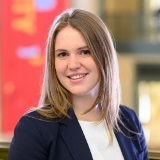
Carme Pons Royo, PhD, Postdoctoral Associate, Massachusetts Institute of Technology

Maria del Carme Pons Royo is a bioprocess engineer with experience in development and optimization of biotechnological products. She completed her bachelor's degree in biotechnology from Universitat Autonoma de Barcelona, followed by a master's degree in Life Science and Technology from TU Delft. Recently, she successfully defended her PhD thesis at BOKU, titled "Millifluidic devices to accelerate process development with a primary focus on protein precipitation and filtration." Currently, she is employed as a postdoctoral researcher at MIT, where she continues her research on the development and optimization of innovative bioprocesses utilizing cutting-edge prototyping tools.

Daniel Poole, PhD, Senior Scientist, Biologics HTP Expression Sciences, Johnson & Johnson Innovative Medicine

Dr. Poole earned his Ph.D. in biochemistry and molecular biology in the Fritz B. Burns Cancer Research Laboratory at Brigham Young University from 2017-2022. After graduating, he joined the high-throughput protein expression team within biologics discovery organization at Johnson and Johnson Innovative Medicine.

Siddarth Prabhu, Process Development Scientist, Attribute Sciences, Amgen

Sidd Prabhu is a Process Development Scientist at Amgen who has experience in fields including particle analytics, cytokine profiling, automation, and computational assessments. He has a degree in Cell and Molecular Biology and Microbiology from California Polytechnic University San Luis Obispo, and a Masters in Bioprocess Bioinformatics from University of Maryland.
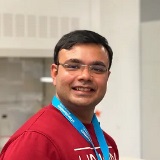
Prashant Pradhan, PhD, Postdoctoral Researcher, Molecular Biology, UT Southwestern Medical Center

Prashant Pradhan, Ph.D., is a postdoctoral fellow at the Cecil H. and Ida Green Center for Reproductive Biology Sciences, University of Texas Southwestern Medical Center. His research focuses on the role of intrinsically disordered regions (IDRs) in transcription regulation, with a particular emphasis on understanding how these regions drive biomolecular condensate formation and gene regulation. His postdoctoral work delves into the molecular grammar that dictates how proteins organize and function within condensates. He aims to design synthetic proteins to study condensate biology, with the ultimate goal of applying this knowledge to develop peptides that target disease-associated condensates, particularly onco-condensates. Additionally, he is investigating the role of TFE3 fusion proteins in translocation renal cell carcinoma. Prashant earned his Ph.D. in Biological Sciences from IIT Delhi, where his research focused on the transcriptional regulation of prion proteins.
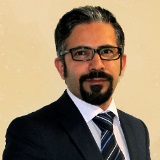
Hamzeh Rahimi, PhD, Scientist, City of Hope National Medical Center

Hamzeh is a Scientist at City of Hope in Los Angeles, specializing in protein and antibody engineering with over 15 years of robust experience in the biotechnology sector. He has spearheaded 12 high-profile projects, translating cutting-edge science into over 75 peer-reviewed publications. His expertise primarily lies in wet lab methodologies, encompassing the development and refinement of antibodies and proteins through advanced biochemical techniques. Hamzeh’s work integrates practical laboratory techniques with computational analyses to optimize therapeutic strategies, particularly in oncology. His career began after earning a Ph.D. from the prestigious Pasteur Institute, where he was recognized for his innovative research contributions. At PepTalk 2025, Hamzeh looks forward to discussing his latest work on receptor glycation in immunotherapy, highlighting his dual expertise in experimental and computational approaches.
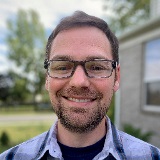
Anthony S. Ransdell, Senior Principal Scientist, Biotechnology Discovery Research, Eli Lilly and Company

Anthony S. Ransdell earned his Master’s degree from Purdue University in Indianapolis, specializing in the study of biosynthesis pathways for polyacetylenic natural products in both plants and fungi. After obtaining his Master’s, he began working in the Biotechnology Discovery Research organization within Lilly. During his tenure at Lilly, Anthony has worked in various capacities centered around the bacterial expression, purification, and biophysical analysis of recombinant proteins. In his current position, he leads a team of scientists dedicated to purifying recombinant proteins and advancing downstream gene therapy platforms.
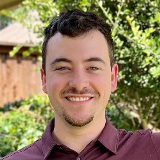
Jacob Rapp, PhD, Research Scientist, Biochemistry, University of Wisconsin

Jacob Rapp began his scientific career at the University of Oklahoma, earning bachelor’s degrees in biochemistry and microbiology while working to develop a new method to predict the kinetic properties of catalysts based on HPLC. While that method was too costly for widespread adoption, it sparked a long-lasting interest in developing tools for research that provide new ways to approach challenging problems. In his graduate work, Jacob integrated machine learning techniques with liquid handling robotics to create SAMPLE, the first closed-loop, fully automated protein engineering platform. A priority in this work was keeping costs low and accessibility high, driven by the idea that a tool is only as good as the public’s ability to use it. Jacob’s work is ongoing to keep making automated research accessible to as many people as possible.

Frances Maureen Rocamora, PhD, Assistant Project Scientist, Pediatrics, University of California, San Diego

Frances Rocamora is a molecular and cell biologist with years of experience in small molecule and protein-based drug discovery and development.
- Cutting-Edge Tools for Purification and Quality Assurance
- Automation in Protein Sciences
- Methods for Developability Analysis
- Recombinant Protein Production - Part 2
- Recombinant Protein Production - Part 1
- Targeted Radioligand Therapies
- Next-Generation Protein Degradation
- Characterization for Novel Biotherapeutics

Judith Ronau, PhD, Senior Scientist, AbbVie Inc.

Judith Ronau received her PhD in chemistry at Purdue University where she carried out structural and enzymatic characterization of metalloenzymes. Following her postdoctoral work in the ubiqutin proteaseom system at Yale University, she joined AbbVie to work on targeted protein degradation. At AbbVie, Judith has helped develop a toolbox of platform assays to fully characterize degrader mechanism of action.
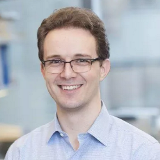
Brian Santich, Senior Director of Research, Y-mAbs Therapeutics Inc.

Brian H. Santich is the Senior Director of Research at Y-mAbs Therapeutics Inc. At Y-mAbs, he leads a team of scientists in the research, development and characterization of novel radiopharmaceuticals using Y-mAbs' SADA-PRIT technology platform. Prior to this role, Brian worked on the preclinical development of other cancer treatment technologies including CAR-T cells, T-cell engaging bispecific antibodies, and checkpoint combination therapies. Brian earned his bachelor’s degree (BA) in Immunology from UC Berkeley and his PhD in Immunotherapy from the Louis V. Gerstner Jr. Sloan Kettering Graduate School of Biomedical Science. He completed a postdoctoral fellowship at the Sloan Kettering Institute in Memorial Sloan Kettering Cancer Center where he helped to develop SADA-PRIT technology.
.tmb-0.jpg)
Jay Sarkar, PhD, CoFounder, reThink64 Bionetworks
.tmb-0.jpg)
Dr. Sarkar has been in the mRNA and gene therapy space for a little over a decade now. His work at Stanford University pioneered the use of epigenetic reprogramming to reset cellular age without erasing cell identity. The earlier stages of the reprogramming process were shown to reverse many aging phenotype, but after a certain point the developmental programming also starts to reverse. His work involved developing and characterizing new constructs and protocols to push the boundaries of the age reversal without overstepping into de-differentiation. From this work, he spun out Turn Biotechnologies - the first company built around this technology. This approach has since become a premiere solution in longevity biotech space. In observing the broader challenges of delivering large molecule drugs, he went on to start his second venture - reThink64 - which is developing new paradigms for delivering mRNA, peptide and gene therapies.
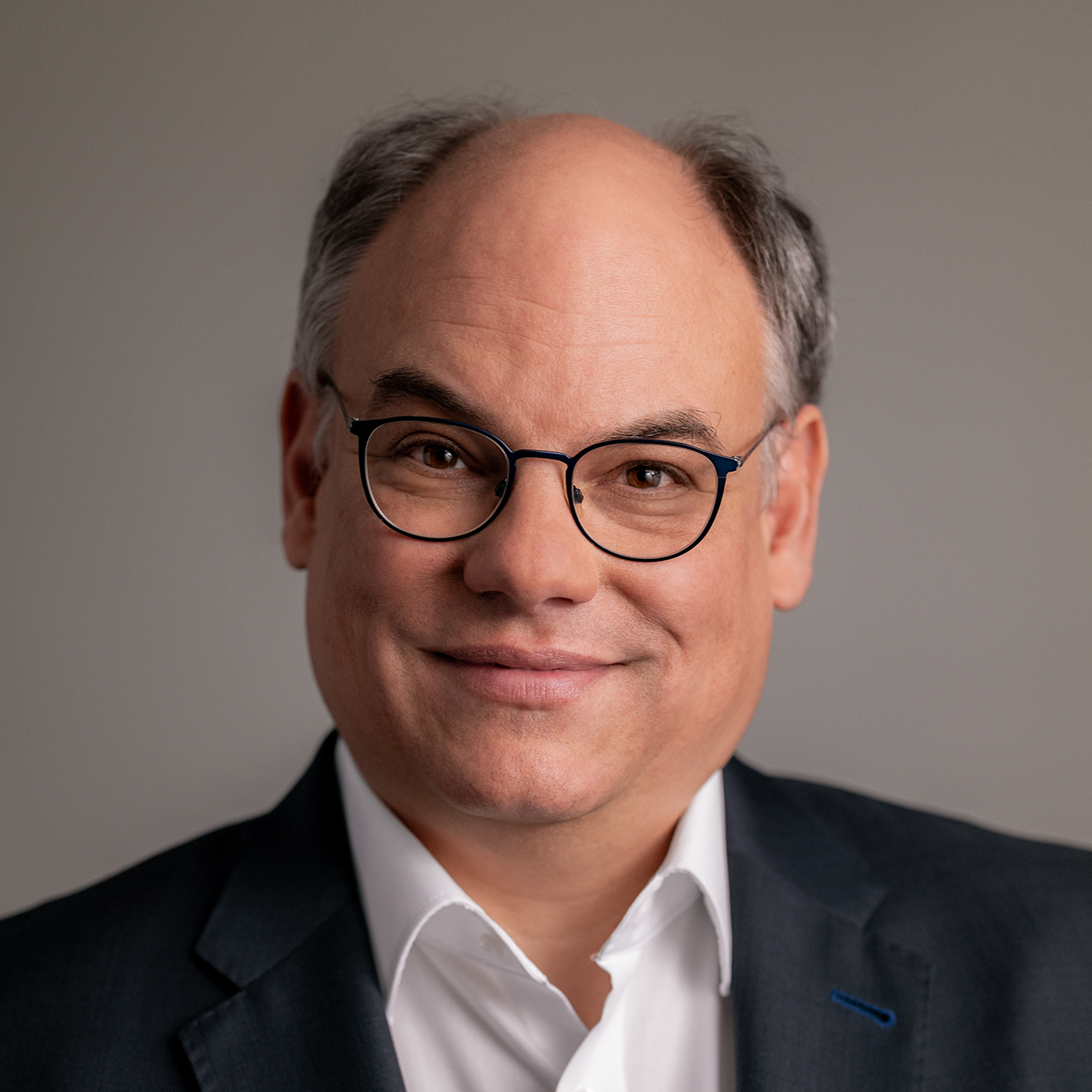
Andreas Schaaf, CSO & Managing Director, R&D, eleva GmbH

Andreas holds a PhD in plant biotechnology. Before joining Eleva as research scientist in 2009, he held positions at the University of Münster and Freiburg, Germany. At Eleva, Andreas was responsible for advancing BryoTechnology to a fully viable biopharmaceutical platform. Andreas has been Chief Scientific Officer since 2015 and was appointed Managing Director at the end of 2019.
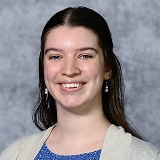
Grace Scheidemantle, PhD, Scientist 1, Cancer Research Technology Program, Frederick National Lab for Cancer Research

Grace Scheidemantle is a mass spectrometry scientist, currently part of the RAS mass spectrometry group under the RAS Initiative at the Frederick National Laboratory in Frederick, Maryland. Her current work focuses on improving proteomic efforts, including both top-down and bottom-up proteomics, to further identify the roles of RAS in both normal and oncogenic signaling and ultimately identify new successful targeted inhibitors for oncogenic RAS mutants. She received her Ph.D. in Molecular and Structural Biochemistry from North Carolina State University where she studied the drug metformin using mass spectrometry and multiomics in the lab of Dr. Xiaojing Liu.
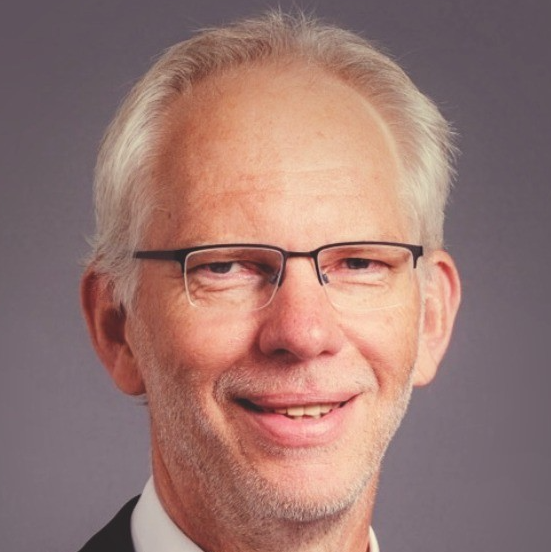
Stefan Schmidt, CEO, evitria AG

Dr. Stefan R. Schmidt MBA, is CEO at evitria AG, a company dedicated to antibody discovery services in Zürich after leading operations at BioAtrium AG, a joint venture of Lonza and Sanofi in Visp, Switzerland as COO. Previously he held the position as CSO and other senior executive roles at Rentschler Biopharma, Germany with overall responsibilities for biologics development and manufacturing. Before that, he was CSO at ERA Biotech in Barcelona, Spain, directing the company’s R&D efforts based on fusion proteins. Prior to that, he worked at AstraZeneca in Sweden where he led the unit of Protein Sciences within Global Protein Science & Supply as Associate Director. He started his leadership career more than 25 years ago at Biotech companies in Munich, Germany where he built up protein biochemistry teams for Connex and GPC-Biotech. He holds a PhD in Biochemistry from the Julius Maximilians University in Wuerzburg, Germany and an MBA from the University in Gävle, Sweden.
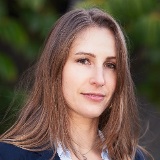
Aude Segaliny, PhD, Senior Director, Head of Research & Preclinical Pharmacology, Amberstone Biosciences

Dr. Aude Segaliny is an accomplished scientist and R&D leader in cancer research and preclinical pharmacology. As a founding scientist of Amberstone Biosciences and its Tumor Microenvironment Activated Therapeutics (T-MATE) Platform, Dr. Segaliny has executed critical projects and delivered on key milestones throughout her career. She is a responsible leader who drives effective communication between internal teams and external collaborators, advisors, and partners. Dr. Segaliny has 15+ years of combined direct experience and extensive skill sets spanning cytokine and receptor biology, cell biology, immunology, microfluidic single-cell discovery platform biology, and preclinical pharmacology, with an emphasis on cancer therapeutics discovery. She received her PhD training with a heavy focus on cytokine biology in the context of bone cancer. Her PhD study brought new insights into IL-34 biology in the pathogenesis of osteosarcoma, where she generated an anti-IL-34 therapeutic antibody and discovered new roles of IL-34 in functional interactions with the macrophage colony-stimulating factor. During her postdoctoral tenure at UCI, Dr. Segaliny led multiple translational research projects including one where she delivered a stem cell-based candidate therapy for metastatic breast cancer. This significant research contributed to a successful technology licensing to and pre-IND filling by a commercial biotech partner based in California. In her current role at Amberstone, Dr. Segaliny leads a team of immunologists, biomedical engineers, and in vivo biologists to identify and characterize Amberstone’s next-generation immunotherapeutic antibodies by leveraging cutting-edge technologies and external collaborations. She was instrumental to the establishment of the company’s proprietary T-MATE discovery platform (licensed out in 2023), which has been crucial to the company’s leading programs, including the ABS-101 development candidate currently evaluated in GLP toxicology studies. Dr. Segaliny is a firm believer in innovations and next-generation immunotherapeutics which have the potential to save and transform lives. Outside of work, she enjoys family life, martial arts, and outdoor activities such as hiking, surfing, and skiing.
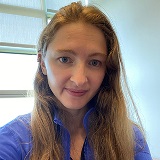
Ekaterina Selivanovitch, PhD, Postdoctoral Researcher, Cornell Smith School of Chemical and Biomolecular Engineering, Cornell University

Ekaterina Selivanovitch received her BS in Chemistry from St. Francis College working on the synthesis of merocyanin dyes. She moved on to pursue an MS in Chemistry at St. John's University, under the guidance of Professor Philip Lukeman, exploring applications of DNA nanotechnology for viral sensing. This eventually led to Dr. Selivanovitch's pursuit of a PhD at Indiana University, where she worked with Professor Trevor Douglas on virus-like particle (VLP)-based nanotechnology. Her studies focused on the physical and chemical properties of porous biomaterials and the development of heterogenous biocatalyst. She is currently a postdoctoral research associate at Cornell University in the lab of Professor Susan Daniel, where she is developing cell-free methodologies for viral membrane proteins and studying lipid biophysics.
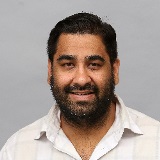
Govinda Sharma, PhD, Founder, Immfinity Biotechnologies

Govinda completed his PhD from the University of British Columbia while conducting his thesis work at the British Columbia Cancer Research Institute in Vancouver, Canada. His work during this time was focused on developing platforms for conducting high-throughput screening of T cell receptor reactivity to do antigen discovery and profile candidate therapeutic T cell receptor crossreactivity. He is a co-founder and current CTO of Immfinity Biotechnologies, a spin-out of BC Cancer dedicated towards commercializing these novel platforms and supporting TCR therapeutics development efforts at partner companies. He also holds a Staff Scientist position with BC Cancer where he is a part of Canada's Michael Smith Genome Sciences Centre.
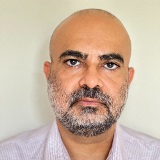
Pranav Sharma, PhD, Founder & CSO, R&D, Xosomix

Pranav Sharma is founder and CSO of Xosomix, a biotechnology company focused on the use of exosome-based platform technology for drug delivery, diagnostics, and therapeutics with a focus on neurological disorders and endometriosis. He made critical scientific contributions towards understanding the role of exosomes in neural circuit development and synaptic plasticity, discovering novel pathway of endocytosis and elucidating ultrastructure of lipid rafts. He obtained a PhD in biophysics and cell biology from National Centre for Biological Sciences, Bangalore, India, with postdoctoral work at CSHL, Cold Spring Harbor, NY, and Scripps Research, San Diego, CA.

Jarrod Shilts, PhD, R&D Lead Scientist, ExpressionEdits Ltd.

Jarrod has been part of ExpressionEdits since the beginning of the company’s journey to change how commercial gene expression is done, joining the founding team as Lead Scientist for R&D. ExpressionEdits has revised the design of the basic building block of the field, the transgene, which has remained essentially unchanged since the 1970s. Our technology incorporates both coding and non-coding DNA into transgenes through a process of ‘intronization’, which unlocks higher protein expression and other improvements that come from engaging cellular machinery that were overlooked by the cDNA transgenes of the past. Prior to ExpressionEdits, Jarrod developed innovative approaches to measure human cell surface proteins at scale in order to discover new drug targets based on cell-to-cell communication while working at the Wellcome Sanger Institute. He received his PhD from the University of Cambridge for work at the interface of biochemistry, systems biology, and bioinformatics.
- Cutting-Edge Tools for Purification and Quality Assurance
- Automation in Protein Sciences
- Methods for Developability Analysis
- Recombinant Protein Production - Part 2
- Recombinant Protein Production - Part 1
- Targeted Radioligand Therapies
- Next-Generation Protein Degradation
- Characterization for Novel Biotherapeutics
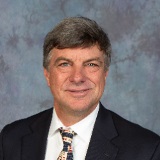
Daniel G. Sipes, MS, Senior Vice President, Technology, Plexium

Daniel Sipes is the Senior Vice President, Head of Technology at Plexium He leads the Engineering, Software, Informatics, Compound Management, Screening and Facilities groups. Prior to joining Plexium, Daniel served as SVP, Strategy and Operations, Site Head San Diego at Strateos (formerly Transcriptic), where he was responsible for building and operating remotely controlled cloud labs for automated chemistry and biology. Prior to Strateos, he was Director, Advanced Automation Technologies at the San Diego site of Novartis (formerly GNF). While at Novartis, Daniel developed and implemented new technologies for drug discovery, assay development, high throughput screening, automated cell culture and protein production. Before that, he held positions focused on high throughput screening and compound management at Kalypsys, Inc. and Ligand Pharmaceuticals. Daniel started his career in the Hybridoma Laboratory at Genentech. He received his BS in Molecular Biology from California State University, Sacramento, and an MS, Immunology from the University of California, Davis.
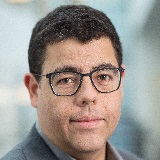
Max Søgaard, PhD, Senior Vice President, R&D and Technology, ExpreS2ion Biotechnologies

Max Søgaard boasts 23+ years in scientific research and process development, notably 10 at ExpreS2ion Biotechnologies, where he rose from Senior Scientist to Senior VP, driving innovation in vaccine manufacturing, collaborating with CMOS, refining processes, and aiding regulatory endeavors. With a 13-year academic research background in infectious diseases, structural biology and molecular biophysics, Max now spearheads ExpreS2's internal R&D, guiding platform and vaccine pipeline growth.

Jing Song, Associate Principal Scientist, Analytical Enabling Capabilities, AR&D, Merck & Co., Inc.

Jing is an Associate Principal Scientist currently in the Materials and Biophysical Characterization Group within Merck Analytical Research and Development organization. working mainly on biologics therapeutics development and characterization through her technical excellence and effective collaboration and contribution to regulatory filing and comparability assessment. She is also active in scientific research in protein-protein interaction investigation using self-interaction chromatography (SIC) and AC-SINS assays and established the workflow for field-flow fractionation (FFF) as an extended biophysical tool for biologics characterization.
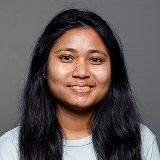
Manashi Sonowal, Researcher, Biochemistry, Arizona State University

I am a fourth-year PhD student in Biochemistry at Arizona State University, with a research focus on recombinant protein expression and purification, leading to structural studies. My current work involves structural and functional studies of nendoU, a key protein from SARS-CoV-2, which plays a vital role in viral RNA processing. Through my doctoral studies, I have gained extensive experience in protein expression, purification, and structural techniques. In addition to technical expertise, my work contributes to a deeper understanding of viral protein functions. It is essential to advance our knowledge of viral proteins and their biochemical functions to contribute to future therapeutic strategies. Beyond my research, I collaborate on interdisciplinary projects, and I am dedicated to advancing the field of biochemistry through innovation and knowledge sharing.
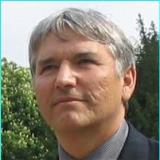
Christopher Southan, PhD, Honorary Professor, Deanery of Biomedical Sciences, University of Edinburgh

Dr. Christopher Southan works at the interface between bioinformatics, cheminformatics, pharmacology and drug discovery. His current role as Data Scientist at Medicines Discovery Catapult, UK (working remotely from Sweden) was preceded by being Principle Consultant at TW2 informatics in Göteborg, Sweden. In turn this was preceded by Senior Cheminformatian for the Edinburgh University BPS/IUPHAR Guide to Pharmacology database team 2013-18. Prior to this he set up TW2Informatics, engaging in patent data consulting for SureChem (2011-12) and the AstraZeneca Knowledge Engineering Program for testing and documenting Chemistry Connect (2009-11). During 2008-9, he coordinated the ELIXIR Database Provider Survey at the EBI, preceded by a Principle Scientist and Bioinformatics Team Leader position in AstraZeneca, Mölndal (2004-7) preceded by senior bioinformatics positions at Oxford Glycosciences Gemini Genomics and SmithKline Beecham. He has a PhD in Protein Chemistry from the Ludwig Maximillian University of Munich and a BSc Hons in Biochemistry from Dundee University (further information on LinkedIN).
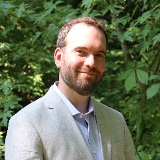
Charles G. Starr, PhD, Senior Scientist, Developability and Preformulation Sciences, Sanofi

Charles received his PhD in Biomedical Sciences at Tulane University in New Orleans. His research centered on the development of antimicrobial peptides for systemic administration in the fight against multi-drug resistant bacterial infections. Upon graduation, Charles studied as a post-doctoral fellow at the University of Michigan. As the recipient of a Kirchstein National Service Research Award (F32), Charles studied weak protein-protein interactions as they relate to high concentration behavior, as well as the principles and practice of antibody discovery. In 2019, Charles joined the Developability and Preformulation Sciences group at Sanofi, supporting Sanofi’s exciting pipeline of biologics at the transition of research to development.
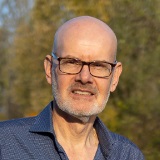
Herman Steen, PhD, CEO, Cortalix

Herman Steen holds a PhD in pharmacology from the University of Groningen in 1992. He worked at Byk Gulden (Altana Pharma/Nycomed/Takeda) and in 1998 he founded PharmaScope, a clinical contract research and pharma recruitment organization. Following the sale of PharmaScope to Quintiles Transnational Corp. in 2005, the internationally operating orphan drug CRO PSR Group was established and eventually sold to Ergomed plc in 2017. Dr. Steen has extensive experience in the organization of clinical research and as a serial entrepreneur in the field of pharma biotech, he is closely involved in commercialization and bridging preclinical research to the clinic. He co-founded BiOrion and led that company for many years as CEO. Early 2023, BiOrion’s assets were purchased by Cortalix, where he is acting as CEO again.
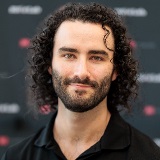
Nathan Tague, PhD, Founder, SynsoryBio

Nathan is the co-founder of SynsoryBio, a biotech company backed by Y Combinator and the National Science Foundation. SynsoryBio is developing conditionally active protein therapeutics designed to sense-and-respond to disease signals for local activation. Previously, Nathan earned his PhD from Boston University under Dr. Mary Dunlop, specializing in synthetic biology. His graduate research covered a range of topics including optogenetic protein engineering, chemical imaging, and metabolic engineering. During his tenure at BU, he also served as an analyst in the Office of Technology Development, where he helped advance BU’s technology portfolio from invention disclosure to licensing.
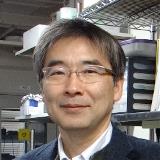
Junichi Takagi, PhD, Professor, Institute for Protein Research, Osaka University

Dr. Takagi received his Ph.D. from Tokyo Institute of Technology in 1990. He then went on to become an Assistant Professor in the Department of Biological Sciences at the Tokyo Institute of Technology through 1998. In 1995-1996, he became a Visiting Research Fellow at Scripps Research Institute in La Jolla, CA. In 1998, Dr. Takagi became a Visiting Assistant Professor at the Center for Blood Research at Harvard Medical School and in 1999, an Instructor as well. Starting in 2002, he switched to the Department of Pediatrics as an Assistant Professor. In 2003, he returned to Japan as a Professor at the Institute for Protein Research at Osaka University. Then in 2017, he co-founded and became Director of MiraBiologics Inc.
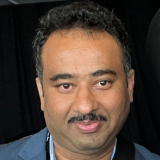
Bharath Takulapalli, PhD, Founder & CEO, SPOC Proteomics Inc.

Dr. Bharath Takulapalli is the Founder & CEO of INanoBio, a start-up developing advanced technologies at the interface of nanotechnology, biology, and machine learning (ML) for Future Healthcare. Bharath believes that, as a scientific community, we can preempt 90% of all diseases. Disease preemption implies detection in pre-disease stages, followed by early intervention and cure, before full disease onset. To contribute to this, we are developing two product platforms to extract 100 - 1000x more information from systems biology (genotype and phenotype) than currently possible. We are developing a novel semiconductor nanopore transistor device to sequence the DNA 1000X faster than the state-of-the-art, at 1/10th the cost. SPOC Proteomics group (spoc.bio) at INanoBio is developing first-of-kind multiplexed protein biosensor technology termed SPOC (sensor integrated proteome on chip) to study kinetic interactions of proteins at scale. INanoBio is based out of Menlo Park, California and Scottsdale, Arizona.

Grace T. Tharmarajah, PhD, Vice President Product & Marketing, Tierra Biosciences

Grace is the VP of Product and Marketing at Tierra Biosciences. She discovered her passion for science during an undergraduate research project, which eventually led her to a PhD in medical genetics at the University of British Columbia. During her time in industry, Grace has worked with talented individuals to apply engineering solutions to scientific problems. More recently, Grace has advocated for the use of hardware and software automation in scientific workflows for product manufacturing and large dataset generation. During her time on the women’s health and transplant teams at Natera, Grace worked on projects to integrate systems for patient sample and data tracking. Grace went on to join Synthego as systems integration was a company objective. Applying automation to cell editing using CRISPR as a team lead, Grace worked on the development of a platform and platform features to produce products for the cell line development market. Subsequently, Grace moved to Tierra Biosciences to tackle the biological complexities surrounding protein production using automation. The expansion and operation of our screening and production platforms at Tierra Biosciences is at the core of our expertise. As we generate millions of data points using our high-throughput systems, we are poised to dramatically influence the way scientists design proteins using predictive AI models. Grace is excited to be part of this AI revolution in discovery biology that is driven by automation.

Michael Thiele, PhD, Founder & CSO, Biology Research, OncoOne R&D GmbH

Dr. Thiele has 15 years of experience in academic and big pharma R&D and has a broad knowledge of the drug development process, from early research to clinical development. He started his professional career at Baxter Bioscience and held various positions in research and development of therapeutics for cancer, inflammation, and hematologic disorders. Most recently, he was the Associate Director of Oncology Research at Shire Pharmaceuticals. Dr. Thiele graduated with a diploma in Technical Biology at the University of Stuttgart, Germany and gained a PhD in Biology from the university RWTH Aachen. He has an extensive knowledge of tumor biology, immunology, mechanisms of action of cancer therapeutics and identification of biomarkers. As co-founder and CSO of OncoOne, Dr. Thiele supported establishing a biotech company in Austria as well as a subsidiary in the USA. Equipped with a strong expertise in oncology drug development and a connection to a global network of key opinion leaders, academic institutions and CROs, Dr. Thiele contributes to develop innovative anti-cancer therapeutics at OncoOne.
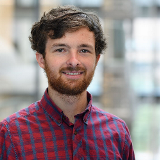
Nick Till, PhD, Postdoctoral Fellow, Chemistry, Stanford University

Nick Till is an NIH Postdoctoral Fellow in Carolyn Bertozzi's group at Stanford University. He received his PhD in chemistry from Princeton University in 2021 following studies in photoredox catalysis with David MacMillan. Before graduate school, Nick spent his summers working in the medicinal chemistry departments of Gilead Sciences and Genentech. Nick received his B.A. in chemistry from Reed College in 2016. His research currently focuses on developing new induced proximity modalities to directly manipulate the cell surface proteome.

Jakub Tomala, PhD, Postdoctoral Fellow, Biomedical Engineering & Spangler Lab, Johns Hopkins University

My main research focus lies in development of translationally relevant cytokine/anti-cytokine antibody fusion proteins, also known as immunocytokines, for treatment of cancer and autoimmune diseases. Apart from design, production and purification pipeline, I preferentially study complex immunological phenomena of these immunocytokines to further understand their therapeutic potential.

Roland Turck, MD, Managing Partner, TurckBio

Dr Turck’s experience spans over more than 30 years as senior biopharma executive and strategy consultant. Dr Turck was responsible for Bayer’s global specialty medicine business unit before co-founding an immune-oncology company and starting his consulting firm. As an expert for radiopharmaceuticals development and commercialization strategy, he is advising numerous companies and investors in the field. He published various articles and was a speaker at numerous events.
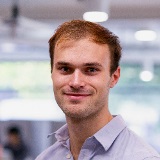
Oliver Turnbull, PhD Candidate, Department of Statistics, University of Oxford

Oliver is a PhD student at the University of Oxford, part of the Oxford Protein Informatics Group led by Professor Charlotte Deane. His research focuses on developing machine learning methods for therapeutic antibody design. Recently, he has been developing generative models to design antibodies with improved developability properties - aiming to reduce both the cost and time required in the discovery process.
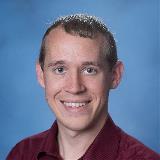
Andrew K. Urick, PhD, Principal Scientist, Protein Engineering, Boehringer Ingelheim Pharmaceuticals, Inc

I got my Bachelor’s in Chemistry and Philosophy at Creighton University in Omaha working in synthetic organic chemistry. I then went to the University of Minnesota, where I received my Ph.D. working under Will Pomerantz developing protein-observed fluorine NMR as a ligand discovery technique. Since then I’ve been working in the high-throughput protein engineering group at AbbVie Bioresearch Center to design, produce, and analyze proteins in high-throughput.

Sathya Venkataramani, PhD, Director, Protein Science, Abbvie

Education: PhD in Biochemistry (Folding/Stability of Repeat Proteins) from University of Zurich, Switzerland; Postdoc (Folding/Stability of Molecular Chaperones) from Stanford University, California. Work Experience: Experience in antibodies, nanobodies, fusion proteins, multi-specifics biophysical characterization; project lead in therapeutic areas (Ophthalmology, Immunology and Oncology) discovery and development of mAb leads for Diabetic Retinopathy, Geography Atrophy, Ischemic Retinopathy, Severe Asthma. In JBIO since 2017; previously employed at Boehringer-Ingelheim (2012-2017). Currently leading Biophysics team for early/late stage biophysical characterization to aid the selection of therapeutic candidates in Janssen and also leading couple of Oncology and Retinal Programs as JBIO Team Leader.
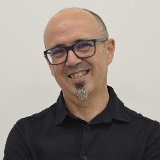
Salvador Ventura, PhD, Full Professor, Biochemistry and Molecular Biology, Autonomous University of Barcelona

Salvador Ventura is Full Professor at the Dept. of Biochemistry and Molecular Biology and leader of the Protein Folding and Conformational Diseases group at the Institute of Biotechnology and Biomedicine (IBB), Autonomous University of Barcelona (UAB). He has been director of the IBB in 2017-20. He has authored >270 peer-reviewed research and review papers, >20 book chapters, and 17 patents. He got his Ph.D. in Biology at the UAB in 1998 and worked as postdoctoral fellow (1999-2002) at EMBL-Heidelberg. He has been researcher at Harvard Medical School (USA) and Karolinska Institutet (Sweden) among other centres. He rejoined UAB as a Ramon y Cajal researcher in 2003. Dr. Ventura received the UAB 2008 Excellence Research Award, the Bruker Prize "Manuel Rico" 2020 from the Spanish Biophysical Society, the 2009, 2015, and 2020 ICREA-Academia Awards in Life Sciences and Medicine, the UAB 2022 Transference Award and the 2022 Narcis Monturiol Medal and is a member of Academia Europaea. He is co-founder of Eureka NanoBioEngineering.

Meghan M. Verstraete, PhD, Scientist, Protein Engineering, Zymeworks, Inc.

Meghan Verstraete is a Scientist in the Protein Engineering group at Zymeworks Inc. Since joining the company in 2019, her work has focused on early-stage development of therapeutic antibody-based platforms using IgG, IgA, and IgM molecules. She recently co-authored a paper describing the engineering of a heterodimeric IgA Fc for the development of multispecifics. Meghan currently leads the protein engineering efforts for a next-generation trispecific T cell engager platform with checkpoint inhibition. Meghan received her PhD from the University of British Columbia in the Department of Microbiology and Immunology
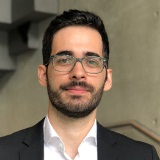
Alex Elias Vlahos, PhD, Postdoctoral Researcher, Synthetic Biology, Stanford University

Alexander Vlahos is a Alexander Vlahos is currently a Human Frontier Science Program Fellow in the laboratory of Dr. Xiaojing Gao at Stanford University. He applies principles in synthetic biology and protein engineering to develop tools for programming intercellular signalling. Previously, he completed his PhD in Biomedical Engineering with Dr. Michael Sefton at the University of Toronto, where he developed platforms to improve vascularization of the subcutaneous space for islet transplantation. His goal is to converge his background in synthetic biology, systems biology, and tissue engineering to mechanistically study and manipulate multicellular systems to improve the long-term engraftment of therapeutic cells.

Bjørn Voldborg, MSc, Head, National Biologics Facility, DTU Bioengineering, Technical University of Denmark

Bjørn Voldborg has more than 20 years of experience working with recombinant protein expression from both academic and industrial settings. Bjørn was team leader in the biotech company Pharmexa A/S, responsible for molecular cloning and expression of protein-based drug candidates. From this, he went to the NNF Center for Protein Research at the University of Copenhagen as Head of the Protein Production Unit, and, since 2012, Bjørn has been heading the CHO Cell Line Engineering project dedicated to the engineering of improved protein production cell factories, and since 2021 he has been heading the Cell Line and Protein Production in the National Biologics Facility at the Technical University of Denmark.
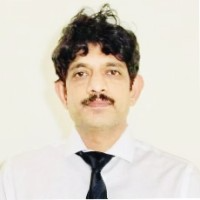
Sudhakar Voruganti, Director, Business Development, Business Development, Pfanstiehl Inc

Sudhakar Voruganti received his doctorate in Biochemistry and Molecular Biology from OSU, Stillwater. Dr. Voruganti has over 15 years of experience in bio-pharmaceutical industry and worked for Bristol-Myers Squibb before joining Pfanstiehl. Since May 2022 Dr. Voruganti is working as Director of Business Development for US East Coast at Pfanstiehl, the world’s leading manufacturer of low endotoxin and high purity GMP parenteral grade carbohydrate based excipients, providing commercial and technical support to customer base in the territory.
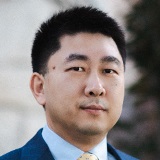
Jin Wang, PhD, Director, Biochemistry and Molecular Pharmacology, Baylor College of Medicine

Dr. Wang received his B.S. degree in chemistry from Peking University and PhD in physical organic chemistry from the Ohio State University. As a postdoc at the University of North Carolina at Chapel Hill, he worked in the field of drug delivery and nanomedicine. His independent research centers on chemistry and serves biology, spanning from chemical biology tools and method development to rational design of therapeutics, including small molecule inhibitors, protein degraders, and antibody-drug conjugates. His scientific contribution has been recognized by multiple awards including the Distinguished Faculty Award from Chinese-American Chemistry & Chemical Biology Professors Association and Michael E. DeBakey, MD, Professorship in Pharmacology.
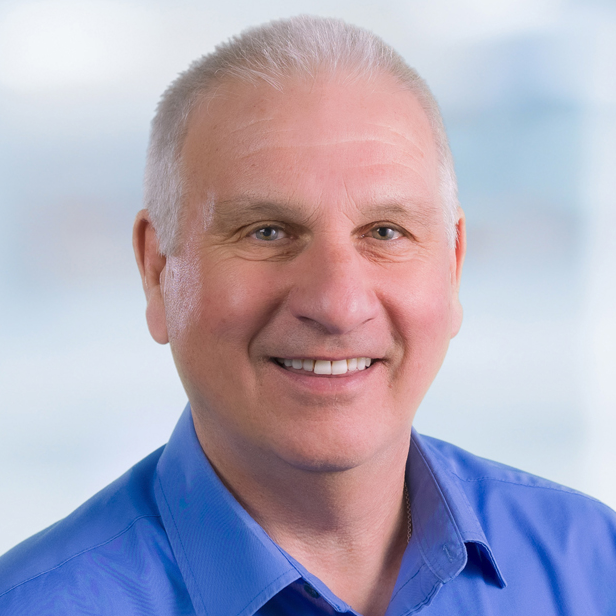
Bill Warren, Consultant Product Manager, Bioseparations, Waters Corp

Bill received his MS in Microbiology and Immunology from the University of Louisville School of Medicine. In 1986, joined Waters Corporation as an senior applications chemist involved with the research and development of HPLC, FPLC, and Capillary Electrophoresis applications for the analysis and purification of proteins, peptides, and nucleic acids. Following four years as a field based technical sales representative for Waters, Bill enjoyed a tenure as Manager, Core Product Evaluation Laboratory within the Waters Worldwide Marketing Organization. Bill currently is a Principal Bioseparation Columns Product Manager whose responsibilities involve assisting in the development and commercialization of innovative reagents and chromatography-based technologies for the separation, purification, and characterization of proteins and peptides.
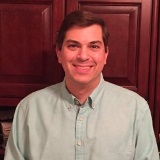
Christopher Wassif, PhD, Director, Molecular Engineering & Antibody Technologies, AstraZeneca

Dr. Christopher Wassif has a wide breadth of knowledge having spent 27 years working at the National Institutes of Health, Bethesda, USA in the fields of Genetics, Rare Diseases, Biomarker discovery/validation, and high throughput small molecule screening. With 90 plus peer reviewed manuscripts and multiple book chapters he is a well-respected leader in multiple fields of research. In 2022, Dr. Wassif transitioned to AstraZeneca as Director of Molecular Engineering and Antibody Technologies and global lead for the Machine Learning for Antibody and Biologics (MLAB). In his current role he leads a dynamic team of scientist converging the powers of AI/ML to facilitate and accelerate biologic discovery.

Kathy Y. Wei, PhD, Co-Founder & CSO, 310 AI

Kathy earned her PhD in RNA synthetic biology with Christina Smolke at Stanford. She then went to a postdoc at the University of Washington in the Institute of Protein Design with David Baker, where she used Rosetta to computationally design de novo protein switches. Kathy then went to UC Berkeley to work with Daniel Fletcher, where she helped cross-pollinate the Baker and Fletcher labs. She began to apply her skills in industry at Amgen, where she led the AmgenFold team, which deploys state-of-the-art ML structure prediction methods for internal use. Now, she is co-founder and CSO for 310 AI, a generative AI company for designer biology. 310 AI believes that the design of novel biomolecules is the single largest advancement that can be enabled by AI.
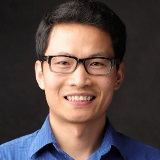
Jianzhong Wen, PhD, Principal Scientist, Group Leader, Merck & Co., Inc.

Jianzhong Wen (go by Wen) is a Senior principal Scientist at Merck. He has been working at Merck in the past 10 years with increasing responsibilities. In the past few years, he was focused on discovering and developing novel drug conjugates that can benefit patients. He was trained as protein biochemist and graduated from Washington University in St. Louis, and did a postdoc at Howard Hughes Medical Institute at UCSD.
.tmb-0.jpg)
David Wood, PhD, Professor, Chemical & Biomolecular Engineering, The Ohio State University
.tmb-0.jpg)
David Wood is a professor of Chemical Engineering at the Ohio State University and is a co-founder and Chief Scientific Officer at Protein Capture Science. David completed a double major in Biology and Chemical Engineering at Caltech, followed by a PhD in Chemical Engineering at RPI, and worked in the biopharmaceutical industry at Amgen and BMS before starting his career in academia. Over the past 25 years he has developed intein technology with the goal of creating a viable, disruptive technology for the biopharma industry, and is a key inventor on this technology and its associated patents.
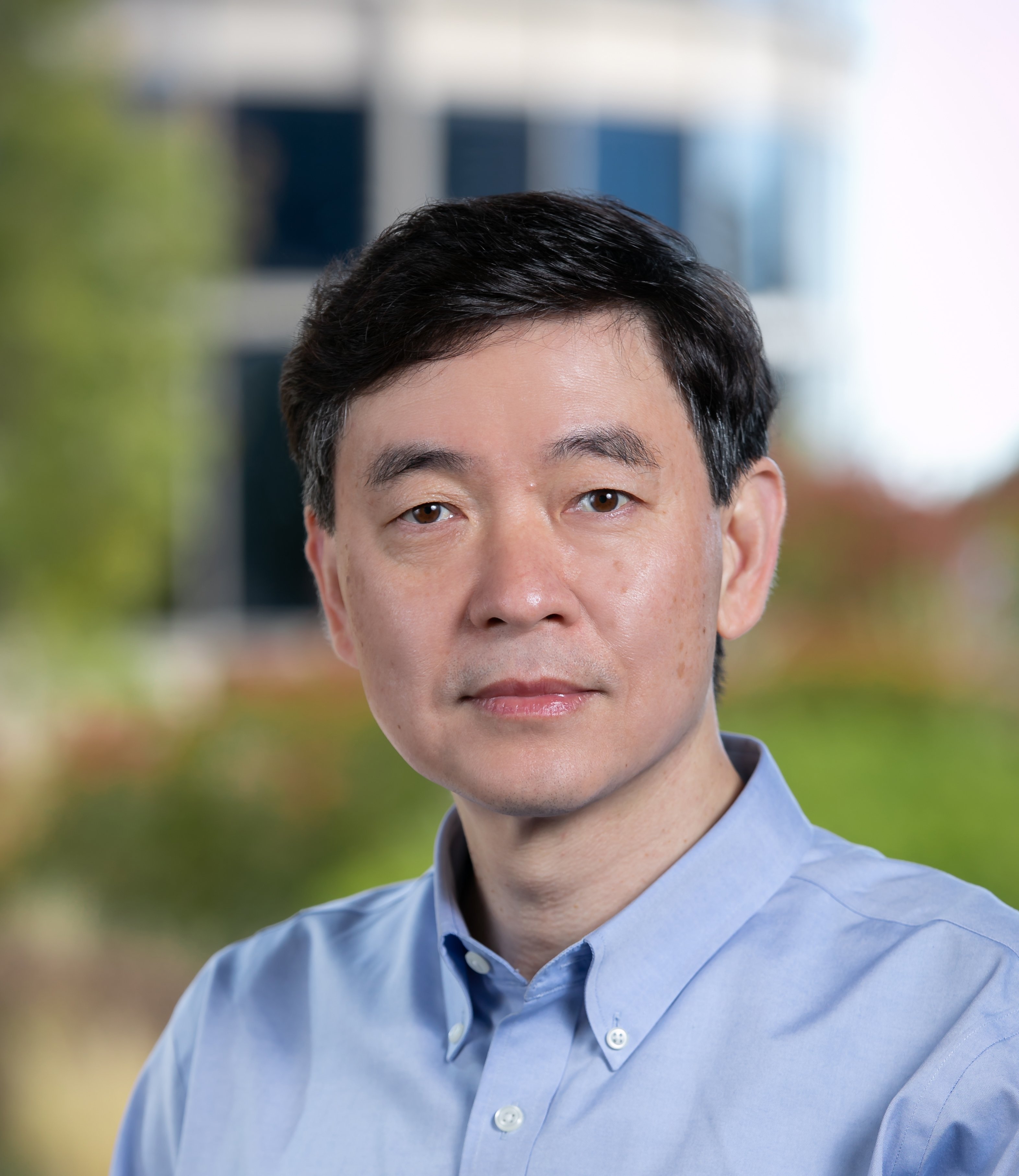
Jiansheng Wu, VP, Protein Sciences, WuXi Biologics USA LLC

Dr. Jiansheng Wu is the Head of CRO Services and Senior Vice President at WuXi Biologics. With vast experience and expertise in protein sciences, he has been instrumental in establishing global protein production facilities and developing cutting-edge technologies. Having participated in over 50 drug development projects, Dr. Wu is a leading authority in automated expression, purification, and characterization of diverse proteins. Previously at Genentech for 15 years, he made significant contributions to innovative protein expression and purification technologies.
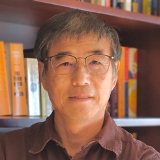
Lei Xie, PhD, Professor, Computer Science & Biochemistry & Biology, City University of New York

Dr. Lei Xie is currently a professor in Computer Science at Hunter College, and Ph.D. program at Computer Science, Biochemistry, and Biology at the Graduate Center, The City University of New York. He is also an Adjunct Professor in Neuroscience at Weill Cornell Medicine, Cornell University, and Chief Scientific Officer of Dark Matter Therapeutics, Inc. His research focuses on developing new methods in machine learning, knowledge engineering, systems biology, and biophysics for multi-scale modeling of drug actions and causal genotype-phenotype associations, and applying them to drug discovery and precision medicine. From 2001 to 2011, he was a principle scientist at San Diego Supercomputer Center (SDSC), research scientist in pharmaceutical company Hoffmann-La Roche and biotechnology start-up Eidogen. He was trained in Computational Biology and Biophysics as a postdoctoral fellow at Columbia University and Howard Hughes Medical Institute from 2000 to 2001. He obtained his Ph.D. in Medicinal Chemistry from Rutgers University, and B.S. in Polymer Physics from University of Science and Technology of China.

Weiliang Timo Xu, PhD, Assoc Dir Bus Dev, Zonsen Peplib Biotech

Weiliang (Timo) is the Associate Director of Business Development at PepLib. Before joining PepLib, he was a senior scientist at a stealth-mode biotech startup in Boston and at SRI International, where he specialized in developing tissue- and cell-specific peptides for intracellular drug delivery. He earned his Ph.D. in Chemistry from the National University of Singapore and completed postdoctoral training in peptide chemistry under Professor Lei Liu at Tsinghua University. During this time, he achieved the synthesis of the world’s first mirror-image DNA polymerase, published in Nature Chemistry in 2016, and the largest synthetic protein, published in Cell Discovery in 2017. Following this, he joined Novo Nordisk, where he applied protein total chemical synthesis to study the structure of the human glucagon receptor. He further trained in mirror-image phage display with Professor Michael Kay at the University of Utah, focusing on developing mirror-image peptide inhibitors targeting immune checkpoints.
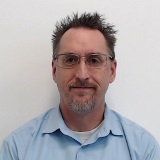
Sean Yoder, Research Automation Core Lead & Senior Manager, Cell Biology Research, Kite, a Gilead Company

Sean is the Research Automation Core Team Lead at Kite, a Gilead Company. With nearly three decades of experience, he has honed his expertise in assay development and lab automation to identify and validate novel targets and therapies. His work spans diverse disease areas, including microbiology, hematology, immunology, and oncology, across academic, start-up, and large biotechnology environments. Sean has authored 15 manuscripts, published in several leading journals, including Blood, Journal of Bacteriology, Journal of Clinical Oncology, PNAS, and Science. Sean obtained his B.A. and M.S. in Biology from California State University, Northridge.
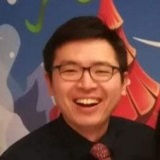
QC Yong, PhD, Associate Director, Antibody CMC, Capstan Therapeutics

With more than 10 years’ experience in drug discovery, cell line development, product/process development, GMP manufacturing for biologics (recombinant proteins/antibodies), and diagnostic products for companies including Baylor Scott & White, BioLegend, and Ligand Pharmaceuticals, Yong joined Capstan Therapeutics as associate director who is responsible for antibody CMC. In addition to the antibody development and manufacturing, he is also in charge of the evaluation and development of site-specific conjugation technologies compatible with lipid nanoparticle.
- Cutting-Edge Tools for Purification and Quality Assurance
- Automation in Protein Sciences
- Methods for Developability Analysis
- Recombinant Protein Production - Part 2
- Recombinant Protein Production - Part 1
- Vectors for Targeted Delivery
- Targeted Radioligand Therapies
- Next-Generation Protein Degradation
- Characterization for Novel Biotherapeutics

Daniel Yoo, Scientific Associate Director, Large Molecule Discovery & Research Data Science, Amgen, Inc.

Daniel Yoo is a Scientific Associate Director at Amgen in the Large Molecule Discovery & Research Data Science group where he is responsible for protein drug discovery and development for a variety of therapeutic programs. His areas of expertise include protein purification and analytics, high-throughput processes, protein folding, chemical modifications, lab automation, and informatics. Daniel Yoo received his Bachelor’s degree in Biology at the University of Rochester in 2003. Prior to joining Amgen, he worked as a research associate in the laboratory of Dr. Reid Johnson at the UCLA School of Biological Chemistry studying the role of the E. coli nucleoid protein Fis in chromosome compaction and gene regulation.

Carissa L. Young, PhD, Senior Director, Development Asset Lead, Biogen

Carissa has 18+ years in pharma-biotech spanning nonclinical, CMC, and clinical development across multiple modalities (cell therapies, biologics, small molecules) and disease indications. She has built and managed cross-functional teams in Drug Development and Data Sciences to maximize the value of therapeutic pipelines, portfolio, and platforms. Her versatility enables her to engage across the diversity of translational sciences, process-product development life cycle, clinical/nonclinical study designs to regulatory filings, data quality oversight and compliance. Previous industry experience includes Intellia Therapeutics, Takeda, Applied Biomath, and Johnson & Johnson. Teaching experience as Instructor at Harvard Medical School and the University of Delaware. Carissa received her Chemical Engineer degrees at Georgia Tech (BS) and the University of Delaware (PhD), completing her post-doctoral training in Biological Engineering at MIT.

Jonathan Zarzar, Senior Principal Scientist and Group Leader, Pharmaceutical Development, Genentech, Inc.

Jonathan has over 15 years of CMC experience and is currently a Sr. Principal Scientist in the department of Pharmaceutical Development at Genentech. Since joining in 2009, he has worked on formulation development of various biologics and currently leads the large molecule formulation developability team. In that role, he is responsible for assessing the developability of a diverse pipeline of molecules including mAbs, T-cell engager, conjugates, and fusion proteins. He is also interested in the development of in-silico predictive tools for accelerating development cycles. Jonathan holds an M.S. degree in Biomedical Engineering from the University of Southern California.
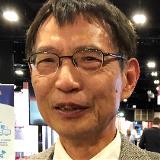
Kevin Zen, PhD, Senior Director, IGM Biosciences

Kevin has over 20 years of broad experience in Biologics CMC, and Strategic and Technical Operations. Prior to joining IGM Biosciences, he held various positions in biologics CMC disciplines at Allergan, AnaptysBio, AstraZeneca, Becton Dickinson, and Catalent Biopharma Solutions. In addition to developing therapeutic biological products in-house, Kevin also had extensive experience working with external contract manufacturing organizations (CMO) and contract research organizations (CRO), including production cell line development, bioprocess development, DS/DP cGMP manufacturing, process characterization, process performance qualification (PPQ), formulation development by DoE, analytical procedure development and method validation, reference standard qualification, extended characterization, and CMC analytical comparability.
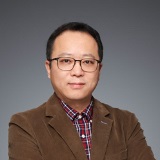
Hailong Zhang, PhD, CEO, Blueray Biopharma Co. Ltd.

Dr. Hailong Zhang, Founder and CEO of Blueray Biopharma., before Blueray, Dr. Zhang worked at Array biopharma. Inc. and Novartis, holding various management positions. Dr. Zhang has published more than 20 research articles in peer-reviewed journals, including Science and Nature. Dr. Zhang was involved in the discovery of many approved drugs such as BRAFTOVI/MEKTOVI(Pfizer), VITRAKVI (Eli Lilly), RETEVMO (Eli Lilly), GANOVO (Ascletis), KRAZATI(Mirati).

Marieke Koedood Zhao, PhD, Independent Consultant, Bioprocess Development

Marieke has 20+ years experience in bio-therapeutic development, facilitating collaboration of research, preclinical, CMC, and clinical development teams and had a track record of ushering novel Biologics from pre-development to first-in-human clinical trials with aggressive timelines. She has hands-on experience in drug substance process development, technology transfer, process scale-up, selection and management of Contract Manufacturing Organizations (CMOs), CMC strategy, and regulatory filings for antibody-drug conjugates and mRNA products entering the clinic. Previous industry experience includes Kudo Biotechnology, GreenLight Biosciences, Mersana Therapeutics, ImmunoGen and Wyeth Biopharma. Marieke received her PhD from the University of Zurich in Switzerland and completed post-doctoral training at Boston University.

Jonathan Zmuda, Dir Cell Biology, Cell Biology, Thermo Fisher Scientific Inc

Jonathan Zmuda, Ph.D. is a Senior Director of Cell Biology R&D at Thermo Fisher Scientific located in Frederick, MD (USA). Dr. Zmuda leads a team of scientists dedicated to developing new products for applications including transient protein expression, viral vector production and nucleic acid delivery. Dr. Zmuda received his Ph.D. in Cell Biology from the University of Maryland, College Park and his BSc degree from Dickinson College in Carlisle, PA.
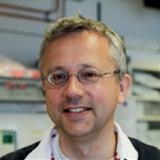
Jan-Willem de Gier, PhD, Professor, Biochemistry and Biophysics, Stockholm University

Jan-Willem de Gier is Professor of Biochemistry at Stockholm University. Main interest of his laboratory is the creation of E. coli recombinant protein production strains. To this end, both evolutionary and engineering approaches are used. In addition, he is Co-Founder of the biotechnology companies, Xbrane Biopharma AB and Abera Bioscience AB.
